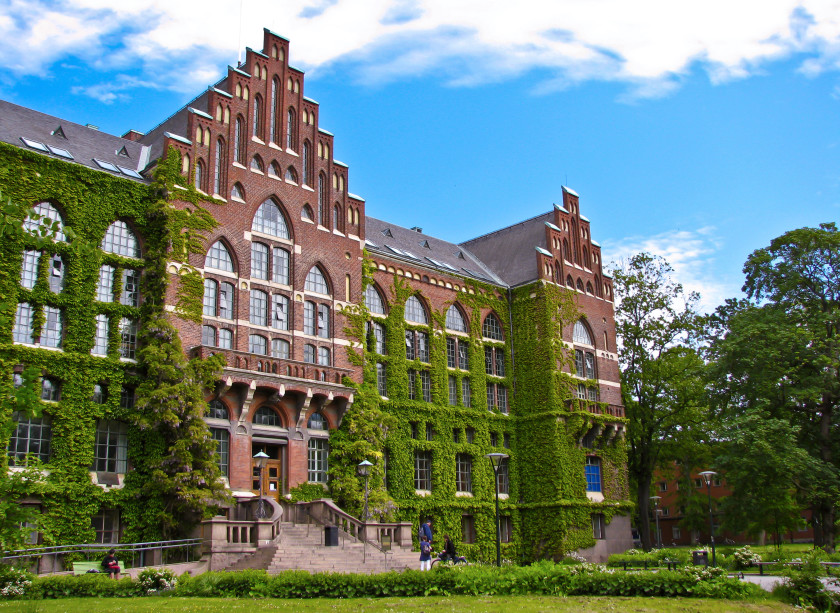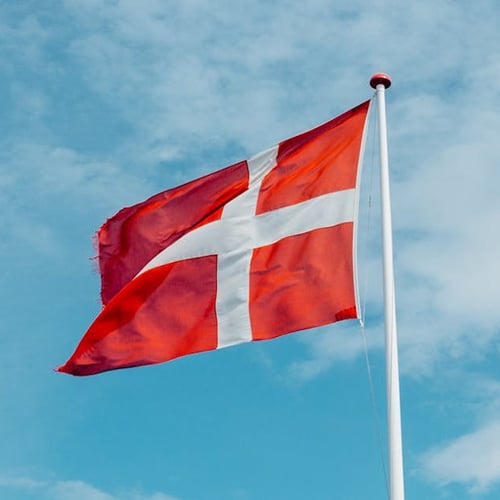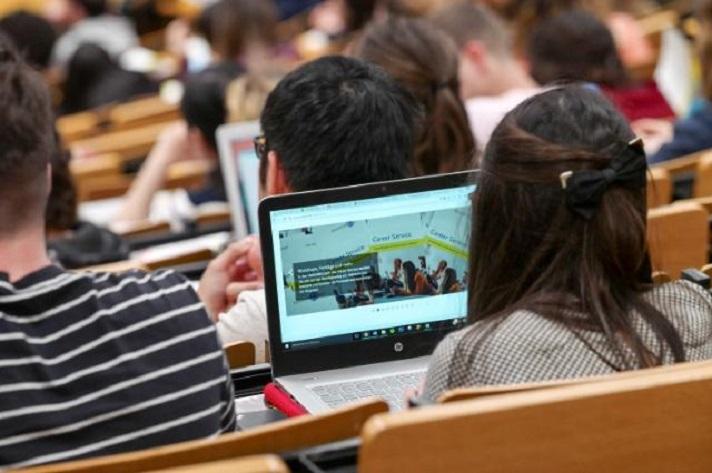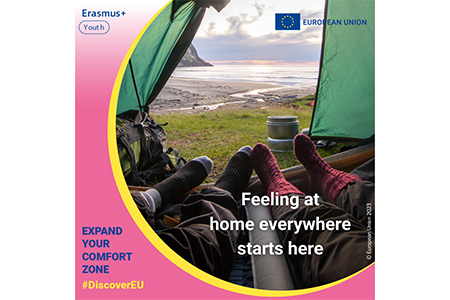Study in Europe for free (or low tuition fees)


Overview: Where can you attend university for free?
With very few exceptions, these are the countries in Europe that offer free tuition at their public universities:
- Tuition-free for students from the EU/EEA
- Tuition fees around 1,500 per year for students from other countries
Tuition at public universities is free for Europeans that want to study in Austria . Non-Europeans are charged a still very affordable 1,500 euros per year.
- Tuition fees around 45,000 - 120,000 DKK per year (6,000 - 16,000 EUR) for students from other countries
Denmark is a popular country for European students because it offers free tuition at high standards. Non-European international students pay up to 16,000 euros per year. Read more about tuition fees in Denmark.
- Tuition fees around 5,000 - 20,000 EUR per year for students from other countries
Since summer 2017, universities in Finland have been charging tuition fees to non-European students. The costs are set by the universities and range between 5,000 and 20,000 euros per year. Citizens from the European Union and EEA continue to study for free in Finland. Read more about tuition fees in Finland.
- Tuition fees around 2,800 - 3,800 EUR per year for students from other countries
With world-class education, and more and more Bachelor and Master programmes offered in English, France attracts a large number of international students every year. Aside from a negligible registration fee, most public universities in France do not charge any tuition fee from Europeans. Internationals pay relatively modest annual fees of ca. 2,800 EUR for Bachelors and 3,800 EUR for Masters. Vive la France! (Read more: Details about tuition fees in France .)
- Tuition-free for students from other countries
Germany is one of the most popular countries for international students and was ranked 1st in our Country Ranking 2017 and 2018. With the exception of a few private universities, you can study in Germany for free - regardless if you are from Europe or elsewhere. There is usually a small administrative semester fee, but this covers a a public transport ticket at the fraction of its usual price.
One of the sunnier places, Greece offers free education to all Europeans. And the cost for international students also low, at around 1,500 euros per year. Combined with relatively low cost of living, Greece is among the more affordable study abroad destinations.
When it comes to money, Hungary ranked among the top in our Country Ranking 2018: No tuition fees for Europeans, very low tuition fees for non-Europeans and very low cost of living.
- Tuition fees between 15,000 and 30,000 EUR per year for students from other countries
Universities in Norway offer free education to students who are citizens of the EU/EEA. Since 2023, students from other countries have to pay comparably high tuition fees of roughly between €15,000 and €30,000 per year depending on university and programme. On top of that, Norway is one of the most expensive countries in the world. So make sure to compare not just the fees, but also the living expenses to other countries you are considering. Even if you have to pay fees elsewhere, it might still be cheaper overall than Norway.
Poland is a very affordable country for students: It ranked most affordable in our Study.EU Country Ranking for 2018. Europeans study for free and non-Europeans pay only a small amount. Plus, it is very cheap to live there.
Scotland (United Kingdom)
- No tuition fee for for undergraduate degrees for Scottish or non-British EU citizens
- Otherwise, tuition fees for EU/EEA students
- Tuition fees for non-EU/EEA students
You are looking for a Bachelor’s degree in Europe, and are a citizen from the European Union or EEA? Then studying in Scotland may be more affordable than you thought: The Student Awards Agency Scotland (SAAS) covers tuition fees for undergraduate degree programmes if you are from Scotland or from elsewhere in the EU. That means that this generous discount does not apply to students from elsewhere in the UK , i.e. England, Wales and Northern Ireland. Whatever the effect of Brexit on tuition fees may be is, however, still unclear.
Read more: Tuition fees in Scotland
- Tuition fees around 5,000 EUR per year for students from other countries
Slovenia is among the less-explored study abroad destinations. Most universities offer free tuition for Europeans, but cost around 5,000 euros per year for other international students.
- Tuition fees around 80,000 - 200,000 SEK per year (8,300 - 20,800 EUR)
Europeans can study in Sweden for free . Other international students should expect hefty fees when studying in Sweden , combined with relatively high cost of living.

Author: Study.eu Team
Our multi-national team has done extensive research to provide you with detailed and correct information. The content is regularly checked and kept up-to-date.

You might be interested in this:


8 Countries Where US Students Can Study For Free In Europe
- Click to share on Facebook (Opens in new window)
- Click to share on Twitter (Opens in new window)
- Click to share on LinkedIn (Opens in new window)
Why pay heavy tuition fees at home when you can study in some of the best cities in Europe for free?
Statistics show that in 2015/16 the average tuition fees at an in-state public college were $9,410 and a whopping $32,405 at private colleges. These high fees are one of the reasons why US students are choosing to jump across the pond to Europe, a continent famous for its culture and history and increasingly known for its free degrees. Here’s a list of 8 of the countries where American students can study for free in Europe:

One of Europe’s economic strongholds, Germany is known for being friendly and welcoming to international visitors. Not only has the country got some of the best and cheapest student cities in the world, the high level of English spoken in the country makes it a great choice for US students.
Germany is the fourth most popular country in the world for international students, and that’s because its universities have completely done away with tuition fees for students of any nationality. Berlin , Munich and Frankfurt are some of the top destinations in Germany for international students and Student.com offers accommodation in all of them. In all, we offer student accommodation in Germany in over 30 cities.
Believing education to be a right rather than a privilege, Germany is leading the way in making a university degree possible for all. In June 2015, more than 4,600 US students were fully enrolled at Germany universities, an increase of 20% over the previous three years. There are over 1,000 programmes taught in English by German universities, meaning language need not be an issue in getting your degree.
Data from the German Academic Exchange Service shows that monthly living expenses for students in Germany are currently around $960. This includes rent, transport, food and entertainment. It’s worth noting that even though tuition is completely free at German public universities, there will be a small semester fee to support the student union and related activities. This costs from $55-$280 each semester.
Humboldt University in Berlin and the Technical University of Munich are among the highly-ranked German universities that charge no tuition fees to American students.

Paris is well-known as one of the best student cities in the world and continues to top polls year after year. Outside of the capital, there are the historical cities of Lyon or Toulouse to consider if you want to mix university life with a touch of the ancient. Montpellier, an hour’s drive from the Mediterranean beach, is the other major student city in France – a quarter of its residents are enrolled at a university. You can also check all of our student accommodation options in France – we list apartments in over 50 cities!
If you are an American who would like to study in France then we have très bien news – it will cost you almost nothing. University tuition at public institutions in France incurs only a small fee of $208 per year for an undergraduate degree and $290 for a masters. Be aware, though, that these costs do not apply to the Grandes Ecoles universities in France who will charge much higher tuition fees. As well as boasting several of the world’s best universities, France is known for its internationally acclaimed specialist business schools such as ESCP Europe , ESSEC Business School , HEC Paris and INSEAD.
To enrol as a student in France you must submit an application to the school that you wish to attend including passport details, plus proof of your grades. American students will need a visa to study in France which is applied for through the CEF procedure run by CampusFrance. Under French law, you need to show evidence that you have enough funds to cover your expenses while studying within the country, and if your course is going to be taught in French you must also prove proficiency in the language.

The real-life land of ice and fire is a fantastic choice for US students who want to save money on their tuition fees. Where else can you balance your study with sitting in a natural hot spring and staring at the northern lights?
Amazingly, all public colleges in Iceland are free for American students. International students make up 5% of all students in the country. The University of Iceland, located in the capital Reykjavik, is one of the largest in Iceland and does not charge any tuition fees. There is, however, an annual registration fee of $600 for American students. Applicants must have an equivalent level of education to the Icelandic matriculation examination. In general, courses are taught in the Icelandic language but there are a few postgraduate programmes provided in English by the University of Iceland, Reykjavík University and the University of Akureyri.
Students are advised that they will need around $980 per month to cover their accommodation and living expenses in Iceland. Americans studying in the Iceland for longer than three months will need to apply for a residence permit once they have secured a place at a university.

American students can reap the benefits of paying no tuition fees at any of the country’s state universities. The University of Oslo , University of Bergen , University of Stavanger , Norwegian University of Life Sciences , University of Agder and the University of Nordland are some of the colleges that are free for US students.
However, living expenses in Norway can be high. Students are will need around $1700 per month to cover the cost of accommodation, food, transport and leisure activities. There is usually a small semester fee to pay of $35-$75, too.
The Norwegian Universities and College Admission Service (NUCAS) is the coordinator of undergraduate admission. US applications will need to submit evidence of their high school graduation diploma and one year of academic university or college studies or three Advanced Placement Tests with at least grade three, according to the admissions guide GSU-list . For courses where the instruction is in Norwegian proof of proficiency in the language is also essential.
Although Oslo is the obvious choice in Norway, the city of Tromsø is also great for students. As well as being home to the northernmost university in the world, Universitetet i Tromsø , the ‘Paris of the North’ has all the quintessential Norwegian charms – reindeer, huskies and an icy coastline visited by whales.

Finland currently offers free tuition fees for US students at all universities, both at undergraduate and postgraduate level. However, from 2017 this is set to change somewhat. Although fees will be added by some institutions for American citizens, some Doctorate level studies and all programmes taught in Finnish or Swedish will remain free.
US students can apply to Finnish universities online, either directly to the university or via the centralized admissions service University Admissions Finland (UAF). . It is necessary to obtain a residence permit before entering Finland to study, as well as having access to funds of at least $7,375 to cover expenses for a year (although the cost of living in Finland is likely to be higher than this).
Helsinki on Finland’s south coast is by far the largest urban area in the country. The city is home to the University of Helsinki and Aalto University , the top two colleges in Finland. It’s a great place to enjoy the renowned high quality of life, technological advancements and extreme seasons of this Nordic gem.

Many Swedish universities provide free PhD tuition to American citizens, and even better, most of the programmes are taught in English. PhD positions in Sweden are usually offered as paid positions by universities or external funding bodies, so you not only study for free but earn a salary, too. Alternatively, a range of scholarship options are available for American students.
As of February 2016, the fee for US students to apply to study in Sweden is $110. You’ll also need at least $1,000 per month to cover living expenses. Americans can apply via Sweden’s centralized university admissions application portal, Universityadmissions.se . A residence permit is required before you enter the country.
Sweden is home to several world-leading universities. Research university Uppsala is the oldest having been founded in 1477. It ranks among the best universities in Northern Europe and it is quite prominent in internationally, too. Lund University and the KTH Royal Institute of Technology are in the world’s top 100 colleges.
7. Slovenia

An underrated corner of Europe tucked between Italy and Croatia, compact Slovenia provides the best of the mountains and the beach with excellent travel opportunities to neighbouring countries. Slovenia in fact has a highly-rated education system considered one of the best in the EU. The University of Ljubljana , in the city of the same name, is considered Slovenia’s main university and is one of the largest colleges in the world. It was Slovenia’s only university until the University of Maribor opened in 1975. Undoubtedly, Ljubljana is one of the prettiest European cities to attend university.
Slovenian universities usually charge American students tuition fees for undergraduate study, but similar to Sweden there are plenty of opportunities to gain a free Doctorate qualification. Apply directly to the university you wish to attend with a secondary school qualification certificate or degree certificate from a recognized university. About 150 English programs are available, and often Americans will need to pay a small registration fee when they enroll.
Student accommodation is cheap in Slovenia. Private housing starts from $220 per month while a university dormitory is under $150. A coffee is $1.60 and a meal in a moderately-priced restaurant not more than $15.
8. Czech Republic

US Students who speak Czech or are willing to learn are able to study abroad for free in the Czech Republic at any public university. Students who wish to study in English can also study fairly cheaply, at around $1,080 per semester. Public universities often charge a small registration fees of just over $20. The application system is also straightforward and can usually be completed online, simply requiring proof of secondary school education.
With the architecturally stunning city of Prague, the historic castles of Brno or the unexplored former industrial stronghold of Ostrava to discover, the Czech Republic has a lot to offer American students. There are over 70 universities to choose from, including Czech Technical University and Charles University in Prague, two of the top-ranked centres in emerging Europe. Living costs are far more affordable in the Czech Republic than in most of Western Europe, at around $350-750 a month.
Where will you study?
Navigating Your Graduate Studies Journey
AI-Powered Learning Revolution: How Tech Supercharges Your Studies
Exam success strategies: your ultimate guide for the academic final stretch, transforming travel into a career path: a comprehensive guide, the ultimate student guide to traveling smart and embracing global citizenship, unlocking visa sponsored job opportunities in the uk.
- Search Search Please fill out this field.
Beyond Europe
The bottom line.
- Colleges & Universities
6 European Countries With Free College Tuition
As U.S. costs skyrocket, more students look for free college abroad
:max_bytes(150000):strip_icc():format(webp)/melinkedin-amysoricelli-caf60795677440dfa5d0024e5f2d865a.jpg)
The staggering cost of higher education in the United States has many prospective college students wondering about countries with free college and pursuing a degree abroad. While conventional wisdom still points to the benefits of having a college degree, more students and their families are seeking alternatives to lower their college tuition bills .
More Americans are looking to Europe at the countries that have free college, as the options abroad are becoming increasingly publicized as the cost of college in the U.S. grows. As this article will explore further, a handful offer free or low-cost tuition to international students and programs of study entirely in English.
Key Takeaways
- The high cost of a U.S. college education has many prospective students looking at other countries that offer free college or low-cost programs, including Norway, Finland, Sweden, Germany, France, and Denmark.
- Reduced or free college tuition in these countries can have strings attached; for example, you may need to be a doctoral student or already have one year of college under your belt before transferring.
- Although these countries offer virtually free tuition, students need to be aware that a higher cost of living in a foreign country can still put them over budget.
Students willing to brave exceptionally harsh winters and one of the highest costs of living in the world might consider earning their degrees in Norway.
Tuition is free at public universities for students from the European Union (EU) , European Economic Area (EEA) countries, or Switzerland, This allows students to earn degrees at top-ranked institutions such as the University of Oslo, the Norwegian University of Science and Technology, and the University of Bergen.
The government introduced tuition fees for international students, which kick in as of the 2023 fall term. The new rules don't affect existing international students or those participating in an exchange program with partner universities.
College in Finland is free for students hailing from the EU, EEA, or Switzerland. However, international undergraduate students wishing to earn degrees in English will pay a minimum of €1,500 per year (approximately $1,663 per year), though many universities charge far more depending on the degree level and program of study.
However, doctoral students as well as those pursuing their studies in Finnish or Swedish, still pay no tuition regardless of their country of origin. The government also plans to offer scholarships and financial aid to international students with exceptional academic backgrounds.
Although you may be able to get a free education in certain European countries, you are still responsible for other expenses, including housing, food, and transportation among others.
Students qualify for tuition-free study if they are Swedish, EU, or EEA citizens. International students who pursue research-based doctoral degrees also get free tuition in Sweden. There are some programs of study that even offer stipends to international students. Nevertheless, students should be aware that Sweden’s high cost of living may put them over budget , even when they pay nothing to earn their degrees.
In 2014, Germany officially removed all tuition fees for undergraduate students at public universities. With the exception of some administrative fees, this applies to U.S. citizens, too. Germany needs skilled workers, and this reality creates a win-win situation for American students.
Students enrolled in one of the country’s public universities can attend for free. What's more, German universities offer a wide range of programs entirely in English, and an American student can earn a university degree in Germany without speaking a word of German.
Top-ranked institutions, such as the University of Munich and the University of Bonn, mean that U.S. students don’t have to trade prestige for cost . Students are responsible, though, for administrative fees and charges, which usually amounts to a few hundred euros per semester.
In the past, students needed to speak French in order to attend university in France. This is no longer the case, however, as many programs of study at both public and private universities are offered in English. Students who attend public universities usually pay a few hundred dollars per year, depending on the degree level and program of study. Over the years, France has modified its free tuition model, and some EU students pay tuition based on family income.
Such changes may eventually impact how much international students pay to attend French universities. The French government is attempting to implement significant price hikes for students who are not from France or the EU.
In September 2019, France's Constitutional Council struck down the legislation that would have hiked the annual tuition fee to €2,770 ($3,071) for a bachelor's degree and €3,770 ($4,180) for a master's degree. A doctoral program costs €380 per year.
Denmark is the same as its European peer countries with free college: students from anywhere in the EU/EEA and Switzerland are able to take advantage of this benefit. However, international students pay anywhere from €6,000 to €16,000 a year, which makes tuition a hefty price compared to other countries.
Though a smaller country, Denmark has a high standard of living and many appreciate the English options available alongside the many different kinds of subjects to study. Some of the best universities include the University of Copenhagen, Aarhus University, and the Technical University of Denmark.
Europe remains a well-known, highly sought-after destination for students seeking refuge from expensive U.S. colleges and universities, but public universities in countries such as Mexico and Brazil also have virtually free tuition. Students pay registration fees, which amount to very little when considering the exchange rates .
Some universities offer top-quality programs of study in English. Earning a degree outside of the U.S., in such countries as Mexico or Brazil, also makes it possible for students to learn highly sought-after languages of commerce, such as Spanish and Portuguese.
Americans can also attend public universities in China and pay tuition costs between $2,500 and $10,000 per academic year, which can be affordable when compared to U.S. tuition rates. The best tuition deals in China, however, are reserved for students able to pursue their studies in Chinese.
Can I Get Free Tuition in the U.S.?
Free tuition is becoming a reality in the United States. There are a number of community colleges that offer students free tuition. Major universities like Harvard and Brown also provide tuition-free education for people whose household income falls below a certain threshold.
Why Do Some European Countries Offer Free Tuition?
There are many reasons why some European countries offer free tuition to their students. Enrollment at the college level tends to be lower than in other countries like the U.S. and Canada, where the cost of education is much higher. Another reason is that some countries are in need of skilled labor.
Keep in mind, though, that the cost of free higher education is borne by the taxpayer. And students are still responsible for certain fees, including administrative charges. But these costs tend to be fairly low.
Do All European Countries Offer Free Tuition?
Some, not all, European countries offer free tuition for higher education. Most don't charge tuition fees for their own citizens or those who are from the EU or EEA. Nominal fees may apply in certain instances. Certain countries have no or low fees for international students.
Many countries in Europe offer students low or no-cost education. This means that they do not have to pay tuition fees out of their own pocket. But that doesn't mean it's completely free. The cost of higher education is the responsibility of the taxpayer. But the idea isn't far off in the United States. Some colleges already offer free education for students, including Harvard and Brown. So if the idea of moving to Europe scares you, you may be able to study for free without a passport.
World Population Review. " Most Expensive Countries to Live in 2023 ."
University of Bergen. " Tuition fees for international students ."
Study in Europe. " Tuition Fees in Finland: Everything You Need to Know ."
ICEF Monitor. " Finland Introduces University Tuition Fees for Non-EU Students ."
Find a PhD. " PhD Study in Sweden – A Guide for 2023 ."
Stockholm School of Economics. " Tuition fees and scholarships ."
The Guardian. " Germany is scrapping tuition fees - why can't England?
LMU. " Fees and tuition fees ."
Universität Bonn. " SEMESTER FEE, LIVING EXPENSES ."
Times Higher Education. " The cost of studying at a university in France ."
Study in Denmark. " Tuition Fees ."
Studyportals Masters. " Study Abroad in China. All You Need to Know about Tuition and Living Costs ."
TheBestSchools. " Best Tuition-Free Colleges in the U.S. "
:max_bytes(150000):strip_icc():format(webp)/GettyImages-1488889438-8ff8e14293544bacaf97fb3c432379fb.jpg)
- Terms of Service
- Editorial Policy
- Privacy Policy
- Your Privacy Choices
Tuition-free universities in Europe for undergraduate students
Europe is not just a popular destination amongst travellers but also among international students. Why? Tuition-free universities. Public institutions of higher education here typically only offer free tuition to students from EU and EEA member countries; however, some, like Germany and Norway, offer free tuition to all students regardless of nationality.
Not only is Germany home to some of the best universities in the world, but you can also study there for free. That’s right, Germans, Europeans, and all non-Europeans can study in Germany free of charge.
This is generally true for international students worldwide, inside or outside the EU/EEA zone. The state of Baden-Württemberg in south-west Germany is the only state that charges fees but these are minimal, at a maximum cost of 1,500 euros per semester — a pittance compared with the US, UK and other popular study abroad destinations.
Germany is home to some of the best universities in the world. Source: John Macdougall / AFP
According to a relocation platform, Expatrio and the non-profit network for international students German Association for International Students (DeGiS) report , “Relocating to and Living in Germany,” , the top three factors that convinced students to study in Germany include its tuition-free universities (33%), the strong reputation of its institutions (31%) and employment opportunities (10%
Imagine being able to study at a top-ranked institution while also gaining valuable international experience without having to worry about going into debt. This could be you if you consider Here are five German tuition-free universities for international students:
- Ludwig-Maximilians University of Munich
- Technical University of Munich
- Humboldt University of Berlin
- RWTH Aachen University
- University of Hamburg
Combine your academics with exciting outdoor activities. We could go on and on about the Aurora Borealis (“Northern lights”), the midnight sun, the fjords, the mountains, and so on. Nature is never far from wherever you are located in Norway.
Norway is a small country with big resources. Source: Odd Andersen/AFP
Norway is a small country with big resources. Maintaining and developing a high-quality, open-to-all education system is a top goal for Norwegian authorities.
International students give many reasons as to why they like studying in Norway: the safe, peaceful, and technologically advanced society; the magnificent scenery; the opportunity to take part in a variety of outdoor sports and activities; and opportunities to enhance careers — both in Norway and in other countries.
Despite being a small country Norwegian universities and university colleges deliver quality education that international exchange and degree-seeking students also benefit from.
Like Germany, Norway is one of the few countries with free education for all international students, whether they come from EU/EEA countries or not. However, there is often a small semester fee of NOK300 (US$38) to NOK600 (US$77). Here are five Norwegian tuition-free universities for international students:
- University of Tromsø
- University of Stavanger
- University of Oslo
- University of Agder
- Østfold University College
Popular stories
You’re doing resumes the hard way: 10 best resume-maker apps that are free, fast and easy to use, no coding skills, no problem: these high-paying jobs in ai welcome everyone, the most affordable canadian universities in 2024 that won’t break the bank, how to pursue a prestigious mba without help from your family, canada reigns supreme as top study abroad destination: survey, 5 international scholarships to study in poland, check out this slovak government scholarship for international students.
European Education Area
Scholarships, grants and financial support.

There are 100,000s of scholarships and financial support schemes available across Europe for international students who wish to study here.
Some schemes cover part of the tuition fees, some cover all of the tuition fees, as well as supporting living costs too. Competition can be strong, but it is well worth exploring your options.
Here are some of the main places to find European higher education scholarships and funding opportunities.
Scholarship opportunities per European country
Each country in Europe offers its own scholarship schemes. Visit the country profiles section of this website, to find out more about scholarship opportunities per country.
Erasmus scholarship opportunities
Erasmus mundus joint master degrees.
These scholarships cover the cost of participation in the programme, travel and provide a living allowance.
Learn more about Erasmus Mundus Joint Master Degrees
Participate in an Erasmus+ exchange
Through the Erasmus+ programme, international students can study in one of 33 European countries for between 3 and 12 months as part of their study programme.
Erasmus+ students do not have to pay tuition fees for their time abroad. Some students may also be eligible for a grant contributing to living costs and travel expenses.
There are also opportunities for students from Europe to study at partner higher education institutions in other parts of the world. To be eligible, you need to be studying at a higher education institution that is part of the Erasmus+ programme. Ask your university or find out more on the higher education in Europe page of this website.
Other ways to find a scholarship in Europe
Scholarshipportal.
Scholarshipportal is a database presenting over 1,000 scholarships available in Europe and beyond. Select your desired level of study, the country you're from and where you want to study to see scholarships that match your profile.
Find scholarships to study in Europe
The EURAXESS website shares information about funding schemes across Europe for research posts, fellowships and doctoral studies. Discover the EURAXESS national portals for more detailed information about opportunities in each country.
Explore the EURAXESS national portals
Universities
As well as the schemes listed above, many universities, research institutes and higher education institutions offer their own scholarships and financial support. Browse their websites to see what is on offer.
Related content
Thanks for your feedback.
We are happy to see that your experience was positive. Don't forget to share the pages you like with your friends and colleagues.
If you need to ask a question, please contact Europe direct .
News | World
Which European countries have free universities?

In May, Sir Keir Starmer went back on his pledge to abolish tuition fees should he become UK prime minister .
The Labour Party leader had made the pledge in 2020 but shared that Britain ’s fragile public finances would no longer allow the party to abolish fees.
Talking to BBC Radio 4’s Today programme about making tuition fees free again, he said: “We are likely to move on from that commitment because we do find ourselves in a different financial situation.
“We are looking at options for how we fund these fees. The current system is unfair, it doesn’t really work for students, doesn’t work for universities .”
While free tuition is a thing of the past here, there are a number of European countries that still offer students free or cheap higher education. Here is a look at those nations.
Countries with free university tuition in Europe
Scotland offers free university education to students who are already ordinary residents in the country and are undertaking their first degree. Potential students who have a “relevant connection” with Scotland will be eligible for up to five years of free education.
There is no set amount of years specified. Basically, your application needs to clearly show that Scotland is and has been your permanent home for a considerable amount of time.
If you don’t qualify for the free tuition offer, you may still qualify to pay the Home fees, which are capped at £1,820.
However, those from the rest of the UK who would like to study in Scotland are still charged up to £9,250.
Norway offers both local and international students free undergraduate and postgraduate education as long as they choose a university that is state-funded.
While the tuition is free, students are asked to pay a small students’ union fee each semester, to help support the universities’ facilities and services. But this fee is usually around £50.
Students from Sweden , the European Union (EU), the European Economic Area (EEA), and Switzerland can access free education in the country. Countries in the EEA comprise the states of the European Union together with Iceland, Norway, and Liechtenstein.
Exchange students are also usually exempt from fees.
However, those who are not from an EU or EEA country have to pay between £6,600 and £22,450 per year based on the course and university they have selected.
Germany offers free university education to everyone. Whether you’re a German, from an EU nation, or a non-European, your tuition will be free of charge at almost all public universities.
The only condition for those who aren’t from an EU nation is that you will need to gain a residence permit before you arrive in the country. Additionally, you’ll have to commit to finishing your studies in Germany.
Higher education in Denmark is free to those from the EU, the EEA, and those who are in an exchange programme. Plus, students who meet the eligibility criteria can also attain free education. The criteria ask that students have a permanent residence, a temporary residence with the possibility of obtaining permanent residence, or have a residence permit.
Alternatively, refugees and protected persons and their relatives might also be given free education.
EU citizens, EEA residents, and Swiss students can study in Finland for free. Everyone else — including UK students — counts as international students and has to pay fees.
State-funded universities in Austria are free to all EU and EEA citizens. Other students have to pay a tuition fee.
While university education is completely free to those from the EU, the EEA, and Switzerland, the fee for those who don’t fit the criteria is relatively low as long as they choose a state-funded institution. Non-European students are expected to pay about £1,320 per year for an undergraduate programme at a public university in Greece .
The French government heavily subsidises tuition fees. Students from the EU, the EEA, Andorra, and Switzerland are asked to pay around £150 per year for a bachelor’s degree and £220 for a master’s degree.
Plus, those who are residents of Quebec, have a long-term residence card, or have lived in a taxable household in France for more than two years are also eligible for these subsidised fees, even if they are non-Europeans.
How much are tuition fees in the UK?
Tuition fees across England, Wales, Northern Ireland, and Scotland are dependent on the student’s home region.
Those who are based in England and Wales pay up to £9,250 per year to study in England, Scotland, or Northern Ireland. The number is slightly less for Wales, with yearly fees costing up to £9,000 per annum.
Welsh students who claim benefits may be eligible for a Special Support Grant (SSG) of up to £5,161.
Scottish students receive university education for free in Scotland. But the same fees apply to them should they wish to pursue their higher education elsewhere in the country.
Students from Northern Ireland receive a tuition discount in their home region, with tuition fees capped at £4,395 per year.
There are exceptions for asylum seekers at more than 80 UK universities, who will have their tuition fees waived, with Sanctuary Scholarships.

Talking Point: Should Labour drop their pledge to end university tuition fees?

Dropping tuition fee pledge ‘deeply disappointing’, Starmer told

Labour ‘likely to move on’ from pledge to abolish tuition fees, says Starmer


Study Abroad Aide
The Best Study Abroad Site
7 Free Universities in Europe for International Students
With its rich cultural heritage, historical sites, and beautiful cities, Europe is a dream destination for many travelers. Europe is also known for its being a provider of outstanding education. The first university was established in Europe almost a thousand years ago, so this area of the world has plenty of experience in creating and disseminating knowledge for the world.
For students and academics, Europe is also a top destination, for it is home to a large number of excellent universities. The best part is that many of them are for free, even for international students. If you are tempted to start your studies there, here are free universities in Europe for international students.
Free Universities in Europe
1. free university of berlin.
- Tuition Fee Link
- Fees for continuing education programs are required
As its name suggests, the Free University of Berlin is free of tuition fees, and it is the first to start this list of free universities in Europe for international students. A fun fact is that the name actually originated from Berlin being “free” rather than the tuition fee being free. Other than its continuing education programs, the Free University of Berlin charges registration fees, and it requires contributions to the student support service, student union, and student tickets. The tuition fees for the actual education, however, are completely free.
Ranked as #5 by QS rankings of universities in Germany, the Free University of Berlin is known for its academic excellence. Its outstanding performance is approved by the German government, as it receives funds from the German government’s Excellent Strategy that only 13 universities of this country are qualified for.
Located in the German capital city of Berlin, the opportunities are endless for graduates. With a degree and skills gained from this public research university, its graduates are sure to stand out from the crowd.
2. Ludwigs-Maximilians University (LMU)
- Semester fees are required
With a small semester fee of less than $130 that covers the student services and public transportation, students here can study in world-class degree programs free of tuition fees. This university is great for students who are thinking to study classics and ancient history, as this is LMU’s strongest field. It is ranked #5 in the world by QS subject rankings.
LMU has been delivering great education ever since its establishment in 1472. Over 500 years, this university has transformed from its humble beginning as a small university founded by a wealthy duke to an internationally recognized university that values diversity, internationalization, and of course, academic excellence.
Constantly ranked as the number one university in Germany, LMU certainly does not disappoint when it comes to the quality of its education and research. The cost of living in Munich might be high compared to other German cities, but with tuition being free, students can study without the added pressure from financing.
3. University of Iceland (UI)
- Registration fees are required
Travel to the land of ice and fire to experience its Scandinavian culture, see its awe-inspiring natural wonders, and enjoy its free higher education that comes with a guarantee of quality. No need to worry about the language barrier because other than Icelandic programs, UI offers English programs to attract international students. University of Iceland is a great free university in Europe for international students.
With a small annual fee of ISK 75,000 (about USD 550), students can enjoy its quality education without further financial demands. For those interested in Vikings and everything Norse, UI is a great option. Not many universities offer programs in Vikings studies, and UI is one of them. After all, where better to study Vikings other than one of their origins?
Even though its scale might not be as large as universities in major megacities of Europe, UI has over 400 programs for students to choose from. Its academics are world-class, and its education outstanding. A degree from UI is a diploma that comes with a guarantee that whoever holds it has the power to use their knowledge to change the world for the better.
4. University of Oslo (UiO)
- Tuition fee link
Next on our list of free tuition universities in Europe is the University of Oslo. For students with a passionate interest in anthropology, this university is a great choice. Its anthropology ranks #29 in QS Subject Rankings worldwide, so the quality of the education, without a doubt, very high. Being the oldest university in Norway, UiO is experienced in cultivating talent and educating bright minds.
UiO is a leading European university that is dedicated to helping develop a sustainable future with knowledge. Even though it is the oldest university in Norway, UiO keeps updating and improving its programs and courses. UiO offers many programs at different levels, and they are taught completely in English to attract international students and increase the competitiveness of its Norwegian students in this globalized world.
With a high standard of living, Norway is a great place for studying. Even though the cost of living in Nordic countries is higher than average, its free tuition policy certainly helps students to focus on their studies without having to worry about money.
5. University of Vienna
- Student Union’s fees required
- Tuition fees required for non-EU/EEA students and students who exceed the standard duration of programs for over 2 semesters
Study in the capital of Austria at the University of Vienna. Programs are free for EU/EEA students, while the tuition fees for non-EU/EEA students are under 750 EUR. To distribute knowledge and resources more evenly, students from designated developing countries do not have to pay, either.
With many of its arts and humanities subjects ranked in the top 50 worldwide, the University of Vienna is another free university in Europe and is ideal for those who would like to study in this field. Having a wide range of degree programs as well as continuing education programs, the University of Vienna is dedicated to making a positive difference in the world through creating and sharing knowledge.
With the campus in the heart of the capital, students can experience its vibrant city life as well as immerse themselves in its cultural heritage and royal architecture. Ever since 1365, making a difference has been the University of Vienna’s goal, and through its excellent education and outstanding research, it is surely achieving that.
6. Norwegian University of Science and Technology (NTNU)
Next up on this list is the Norwegian University of Science and Technology (NTNU). Norway is a great option for international students, as public universities in this country charge no tuition fees, regardless of where you come from. As its name suggests, NTNU is a university that has technology and science as a focus, which makes it a great choice for STEM students.
NTNU has a strong faculty team to teach and research, especially in the field of engineering. Its engineering (petroleum) subject is ranked #33 in QS Subject Rankings, and many others are also among the top 100 in the world. This university is a great fit for students pursuing higher education in the field of art, as NTNU has the widest range of programs in the art subject in all of Norway.
Having partnership agreements with all major industrial companies in Norway, NTNU seeks to bring the world of academia and industry together. Its students and graduates have access to opportunities for internships and jobs, and its researchers can produce relevant research by working closely with companies. With all its perks as well as being free, NTNU is certainly a great choice for international students.
7. Masaryk University (MUNI)
- Fees are required for programs in English
We end our list of free universities in Europe with Masaryk University. If you speak Czech or if you have always gotten a knack for language learning, Masaryk University (MUNI) is definitely a university you should consider. The policy regarding higher education tuition fees in Czechia is that all programs taught in Czech in public universities are free, and they only charge you for programs in English.
The strongest subjects of this university lie in the fields of language and environment. Its linguistics studies and English language and literature are the strong suits of the arts and humanities field, and its forestry and agriculture and environmental studies are also recognized as outstanding.
Czechia, compared to other European countries, has a relatively lower cost of living. Combined with its free world-class higher education, it is one of the most ideal location for students looking to study in a field of their interest.
Leave a Reply Cancel reply
Your email address will not be published. Required fields are marked *
Save my name, email, and website in this browser for the next time I comment.
Courses by Degree
- Undergraduate
- Master’s
Courses by Country
- United Kingdom
Courses by Subject
- Computer Science
- Data Science
- Hospitality and Tourism Management
19 Countries With Free Education For International Students
Link Copied
Share on Facebook
Share on Twitter
Share on LinkedIn

Unlock Your Future for Free
Are you willing to study abroad but experiencing a lack of confidence due to financial constraints? With university fees skyrocketing, there is still hope - you can find many countries with free education. Yes, you can make the best of breathtaking destinations that also can help you reach your potential. While the USA is a dream destination for many, you can consider some of the European countries for free education and shape your dream. Of course, you may have to pay for small administrative fees! To gain better insights into the free education countries for international students and the courses to choose there, let’s go through this list!
Top 19 Countries With Free Education
If you are wondering which countries provide free education for international students, then don't worry; various free education countries for international students are available. Below, we will explore the top 19 countries with free education. So, let’s get ready to learn about the fees, average cost of living (per person), universities, and beyond!
Fees for EU/EEA/Switzerland Citizens: Free Fees for Non-EU Citizens: €762/Semester Average Cost of Living: €900 - €1,500/month Popular Courses: Law, History, Communication, Language studies, and Pedagogy Best Free Universities: University of Vienna, University of Salzburg, Medical University of Vienna
This European gem boasts not only a high quality of life and rich culture but also is one of the best countries with free education for EU students and affordable for others. Austria is undoubtedly considered one of the top countries with free education, where international students can work up to 20 hours per week without a permit. After graduation, they can even apply for a one-year visa to search for employment.
Fees for Wallonia-Brussels Federation or EU Citizens: €835 Fees for Non-EU Citizens: €2,505/year Average Cost of Living: €950 - €1,350/month Popular Courses: Political Science, International Relations, Journalism, and Economics Best Free Universities: Erasmus Brussels University of Applied Sciences and Arts, Thomas More University of Applied Sciences, Hogeschool Gent (HOGENT)
The nation known for chocolates and waffles is also one of the countries with free education. Students studying in Belgium can also work up to 20 hours a week during their academic years. You can also apply for a residence permit for one year post-graduation if you are looking for a job in this country with free education.
3. Bulgaria
Fees for EU Citizens: €300 – €1,700/year Fees for Non-EU Citizens: €1,750 – €3,850/year Average Cost of Living: €550 - €700/month Popular Courses: Dentistry Medicine, Pharmacy, Engineering, Veterinary Medicine, Computer Science Best Free Universities: Trakia University, Technical University of Gabrovo, Nikola Vaptsarov Naval Academy
Bulgaria, one of the free education countries, hosts almost 14,000 international students and is a great way to explore other cultures. International students are allowed to work for 20 hours per week during their academic year and holidays. If you plan to stay post-graduation, you can apply for a post-graduation work visa, which is valid for 9 months. While you may wonder why Bulgaria is on the list of countries with free education, affordable tuition fees are the reason why.
4. Republic of Cyprus
Fees for Cyprus & EU Citizens: Free Fees for Non-EU/EEA Citizens: €7,000/year Average Cost of Living: €700 - €1,000/month Popular Courses: Business Management, Computer Engineering, Graphic Design, Law Best Free Universities: European University of Lefke, Eastern Mediterranean University (EMU), Near East University (NEU)
This stunning island of Cyprus, which is known for its mythology and natural beauty, is one of the countries with free education for EU citizens. Bearing the subtropical climate, Cyprus also boasts high-quality education and the opportunity to work up to 20 hours per week during your studies. After graduation, you can stay in Cyprus for 60 days to search for employment or further make the best of affordable courses in this country with free education.
5. Czech Republic
Fees for EU and Non-EU Citizens: Free (for Czech-Taught Degrees) Fees for EU and Non-EU Citizens: €0-18,500/ year (for English/Foreign Language-taught Degrees) Average Cost of Living: €300 - €750/month Popular Courses: Economics, International Affairs, Tourism, and Architecture Best Free Universities: The Academy of Fine Arts, The Academy of Performing Arts in Prague, Czech University of Life Sciences Prague
This enchanting country for free education is also famous for its castles, stunning architecture, and rejuvenating spa. If you pursue a degree that the Ministry of Education accredits, you can also work during your studies. Being one of the free education countries, you can work for 30 days a year. In case you are looking for a job after graduation, you can apply for a post-study residence permit, which is usually for 9 months.
Dreaming of studying in one of these tuition-free countries? Let us help you find your perfect accommodation hassle-free!
Book through amber today!
Fees for EU/EEA and Switzerland Citizens: Free Fees for Other Citizens: €6,000 – €16,000/ year Average Cost of Living: €750 – €1,200/month Popular Courses: Geography, Anthropology, Social Sciences, and History Best Free Universities: University of Copenhagen, Aarhus University, Aalborg University
If you are looking for one of the best countries with free education and innovative learning methods, Denmark should be one of your choices. Plus, one can work up to 20 hours a week and even full-time during summer breaks to earn while studying. Moreover, you can apply for a six-month work visa after completing your graduation in this country with free education. Curious about your career prospects after you complete your education in Denmark? Rest assured knowing that this is one of the best countries to work abroad in 2024 .
Fees for EU/EEA/ Swiss Citizens: Free (for Estonian-taught degrees) Fees for EU/EEA Citizens: Starts at €1,660 (for English-taught degrees) Average cost of living: €500 - €750/month Popular Courses: Area Studies, International Relations, Anthropology, and Architecture Best free universities: University of Tartu, Tallinn University, Estonian Business School (EBS)
With a budget-friendly tuition fee and no restrictions on working hours for international students, Estonia is amongst the countries with free education, offering the perfect opportunities to accelerate your academic career. Non-EU students can even apply for a post-study work visa and stay up to 9 months to find their dream job in this European country with free education.
Fees for EU/EEA Citizens: Free (for Finnish or Swedish-taught Degrees) Fees for Non-EU/EEA Citizens: €4,000 – €18,000 (for English-taught degrees) Average Cost of Living: €700 – €1,300/month Popular Courses: Engineering, Business, Computer Science, Education, and Nursing Best Free Universities: University of Helsinki, University of Vaasa, Tampere University
Finland is one of the best countries offering free education for international students. International students can also work up to 30 hours per week during their studies and stay in the country for up to two years after graduation. This country with free education, also, focuses on critical thinking and problem solving.
Fees for EU/EEA, Andorra, and Switzerland Citizens: €170 – €380/year Fees for Non-EU Citizens: €2,770 (Bachelor's); €3,770 (Master's) Average Cost of Living: Around €900/month Popular Courses: Contemporary Philosophy, History and Philosophy of Art, Management, Engineering, and Film Studies Best Free Universities: Le Mans University, Sorbonne University, University of Clermont Auvergne
France is among the best countries with free education for international students. You can work for up to 964 hours per year while studying, and stay in the country for up to one year after graduation to explore job opportunities. Along with a comprehensive guide to studying in France , you will easily navigate your way to one of the brilliant countries with free education.
10. Germany
Fees for EU/Non-EU Citizens: Free Average Cost of Living: €934/month Popular Courses: Business Administration, Architecture, Engineering, Data Science, Law Best Free Universities: Heidelberg University, Free University of Berlin, Humboldt University in Berlin
With a world-class curriculum, Germany has become one of the most popular countries with free education. With the option to work full-time for 120 days or part-time for 240 half days during their studies, students can support themselves while pursuing their passions. After graduation, they can stay in the country for up to 18 months to find a suitable job. Furthermore, the short-term student accommodation in Germany eases your journey in this country with free education.
11. Luxembourg
Fees for EU, EEA & Swiss Citizens: Free (for Luxembourgish-taught Degrees) & €1,200/year (for English-taught Degrees) Average Cost of Living: €1,414–€2,036/year Popular Courses: Medicine, Engineering, Humanities, Psychology, Economics Best Free Universities: University of Luxembourg, European Business University, United Business Institutes
Luxembourg is one of the richest nations across the globe, yet it is ranked as one of the best countries with free education. With a high standard of living, a strong economy, and many opportunities in various sectors (such as finance, law, technology, and innovation), non-EU/EEA/Swiss citizens can stay in this country with free education for 12 months to seek employment.
Fees for EU/EEA Citizens: Free Fees for Non-EU Citizens: Starts from €1,500/year Average Cost of Living: €450 - €750/month Popular Courses: Tourism, Computer Science, Medicine & Healthcare, Philosophy, Education Best free universities: University of Crete, National Technical University of Athens, Aristotle University of Thessaloniki
Greece is home to a number of prestigious universities, making it one of the best countries with free education. Along with a standard of living at affordable prices, gathering rich cultural experiences is another reason to study in this country with free education. Students can also work for 20 hours per week during the semester. However, during vacations, the students can work up to 40 hours per week.
13. Iceland
Fees for EU/EAA Citizens: Free Fees for Non-EU/EAA Citizens: Free Average Cost of Living: €1,300 - €2,000/month Popular Courses: Environmental Studies, Nordic Studies, Business & Entrepreneurship, International Business Best Free Universities: Bifrost University, Iceland Academy of Arts, University of Iceland
Iceland is one of the most favoured countries for free education, owing to its safe environment, inclusive community, and multicultural community. Plus, an exciting student life and a stay-back period of 6 months are other crucial benefits. The students can work up to 15 hours/week during their academic years, making Iceland one of the top countries offering free education to international students.
Fees for EU/EEA Citizens: Free Fees for Non-EU/EEA Citizens: €13,000 Average Cost of Living: €1,200 - 1,600/month Popular Courses: Renewable Energy, Petroleum Engineering, Aquaculture and Fisheries Best Free Universities: University of Tromso, Bergen University College
Besides being one of the 10 most immigrant-friendly countries in the world , Norway deserves to be on the list of countries with free education & welcoming neighbourhoods. Numerous programs are taught in English, barring the language gap for international students. Moreover, the job seeker visa is valid for 12 months to seek employment in this country with free education.
Fees for Polish, Switzerland and EU/EEA Citizens: Free (for Polish-taught degrees) Fees for Non-EU Citizens: €2,000/year Average Cost of Living: €600 - €900/month Popular Courses: Medicine & Dentistry, Law, Fine Arts, Social Studies Best Free Universities: University of Warsaw, Lazarski University, University of Lodz
Poland is amongst the few countries with free education that also offers an affordable standard of living if compared to other nations. With a student-friendly atmosphere and enriched culture, this country with free education allows international students can stay up to 12 months after completing their studies with their job seeker visa.
Experience the benefits of tuition-free education in top countries while we take care of your housing arrangements!
Fees for EEA/EU/Swiss Citizens: Free Fees for Non-EU citizens : Starts at €1,080/year Average Cost of Living: €950-€1,270/month Popular Courses: Marine Biology, Business & Management, Tourism & Hospitality Best Free Universities: University of Malta, Malta College of Arts, Science and Technology (MCAST)
Maltese universities are widely popular for their diverse learning environment. Moreover, it has become one of the preferred countries offering free education to international students can also work up to 20 hours every week. After completing your degree, you can obtain a temporary residence permit that allows you to stay in this country with free education for 6 months.
Fees for EU/EEA, other Nordic countries, and Switzerland citizens : Free Non-EU/EEA : Starting from €7,500/year Average Cost of living : €924 - €1,217/month Popular Courses : Medicine, Social Sciences, Law, Business, Management, and Agriculture Best Universities : University of Gothenburg, Jönköping University, Dalarna University, Luleå University of Technology
When talking about countries with free education, then Sweden is definitely one of the best additions to the list. In Sweden, the education revolved primarily around practical and group work which is designed to enhance the overall learning experience for students. An interesting thing about studying in Sweden is that international students can work as many hours as they want during their studies. However, they must spend 40 hours per week on academic responsibilities too.
18. Portugal
Fees For EU/EEA citizens : Starting from €550/year Average Cost of living : €752 – €1,026/month Popular Courses : Business Management, Medical Studies, Arts, and Engineering. Best Universities : Lusophone University of Humanities and Technologies, University of Porto, University of Minho
In addition to having an amazing football team and delicious varieties of cuisines, Portugal is also known all over the world for its affordable educational opportunities. In fact, aspiring students considering Portugal as their educational destination can live pretty comfortably with low costs of living and expenditures. Additionally, International students in Portugal can work 20 hours per week during their studies and full-time during vacations.
19. Netherlands
Fees for EU/EAA, Switzerland or Surinam citizens: €2,314 Fees for Non-EU/EAA : Starting from €6,000 Average Cost of living : €1,165 - €1,646/month Popular Courses : Accounting, Engineering, Health Care, Social Science, Law, Computer Science, and Arts. Best Universities: HZ University of Applied Sciences (HZ), Nijmegen School of Management (NSM), HAS University of Applied Sciences.
When looking for a free education country in the world, then the Netherlands is definitely one to consider. Known for its interactive and student-centric style of teaching, the Netherlands have some of the best universities that offer a variety of degree courses and programs at affordable prices. Another interesting thing to note is that students can spend one year in the country after graduation to look for a job.
Now that you have a list of the countries offering free education to international students throughout the world, your next step should be looking for student accommodation. Amber provides the best student accommodations with a feel of comfort with plenty of amenities. So, why wait for a book today? Book early and unlock many perks in the best countries for free education! You can also check out our blogs on exam preparation to get an amazing education in these countries.
Frequently Asked Questions
In which country education is totally free, which country has the most free education, which country gives free education to international students, is education in germany free, which country has the lowest education fees, is finland's education better than the uk's, how many countries have free education.
Your ideal student home & a flight ticket awaits
Follow us on :

Related Posts

How To Get Into Oxford University 2024-25
.jpg)
A Comprehensive Guide to UK Intakes: Spring, Winter, and Fall
.webp)
UK Grading System Guide 2024: Everything You Need To Know!

Planning to Study Abroad ?

Your ideal student accommodation is a few steps away! Please fill in your details below so we can find you a new home!
We have got your response
.jpg)
amber © 2024. All rights reserved.
4.8/5 on Trustpilot
Rated as "Excellent" • 4800+ Reviews by students

Rated as "Excellent" • 4700+ Reviews by Students
amber © 2023. All rights reserved.


25,000+ students realised their study abroad dream with us. Take the first step today
Here’s your new year gift, one app for all your, study abroad needs, start your journey, track your progress, grow with the community and so much more.

Verification Code
An OTP has been sent to your registered mobile no. Please verify

Thanks for your comment !
Our team will review it before it's shown to our readers.

- Study in Europe /
Which Countries Offer Free Education in Europe?
- Updated on
- Jan 3, 2024

Ever wondered which countries offer free education in Europe? While university costs continue to grow in many parts of the world, some of you may believe that acquiring a recognized degree certification is out of reach. However, there are many nations throughout the world where students may study for free or for very little cost. Here are some of the best nations in Europe that provide free education or zero tuition cost education to international students!
This Blog Includes:
Why study in europe, is education really free in europe, top countries offering free education in europe, cheap countries to study in europe .
There are a variety of reasons why studying in Europe may help you progress academically and professionally, and some of them are outlined below.
- International students frequently choose France, Switzerland, Germany, Denmark, and Italy as destinations for their studies in Europe.
- Germany is the ideal location for those interested in pursuing engineering degrees. In Europe, Germany has the lowest tuition fees.
- Another popular location for fashion and business training is in Italy. Students may take advantage of a wide range of options, as well as fantastic exposure.
- Another incentive to stay in Denmark is that it is ranked as the 10th greatest country in the world to live in. The school system in this country is great, and science and technology courses are also superb.
Many nations provide free (nearly free) education (there may be some little fees to pay). You must meet your living expenses). International students, indeed, are eligible for free education. Yes, you are qualified for stipends or scholarships (if available).You are permitted to work 20 hours each week (in most countries). Many English-language courses are available. Note that only tuition and fees are covered; health/travel/living expenses are not. If you are wondering which countries offer free education in Europe then here’s the list!
Here are the top countries that offer free education in Europe:
Germany is a popular choice among American students since it is one of the few nations that provides free college tuition to all students enrolled in public higher education institutions, regardless of nationality. Germany has attempted to increase the number of English-taught courses, and many universities do not need confirmation of German proficiency.
Check Out: Free Universities In Germany For International Students
In Norway, public institutions, which make up the bulk of Norwegian universities and state university colleges, do not charge tuition. All students, regardless of country, are subject to this regulation. Tuition costs are charged by private universities, however, they are often lower than in other countries, and overseas students pay the same rate as Norwegian students.
Tuition fees are not charged at public institutions in Iceland, and this applies to all students, regardless of country. However, finding courses fully in English at the bachelor’s degree level may be difficult: while many institutions offer English programs, they tend to be master’s and doctoral programs. If you do not speak Icelandic, you should contact the university in question to ensure that there will be a wide range of course options for you to pick from.
Students from EU/EEA member nations are eligible for free college tuition for two semesters, after which they must pay 363.36(30,754 INR) euros each semester. In general, other foreign students pay 726.72(61,509 INR) euros every semester. The student union membership cost “H-Beitrag” and the student accident insurance charge, both of which are 19.20 euros(1,608 INR) each semester, must be paid by all students.
Students from EU/EEA member nations who study full-time at state-run Higher Education Institutions (HEIs) in Poland do not have to pay tuition. Other overseas students pay 2,000 euros(1,69,278 INR) per year on average. There are 118 higher education institutions in Poland, with over 800 English-language programs.
Students from EU/EEA member nations who study full-time at state-run Higher Education Institutions (HEIs) in Poland do not have to pay tuition. Other overseas students pay 2,000 euros(1,69,278 INR) per year on average. There are 118 higher education institutions in Poland, with over 800 English-language programs. higher education institutions provide free college tuition to EU/EEA students pursuing their first cycle ( bachelor’s degree ). Non-EU students spend an average of 1,500 euros(1,26,959 INR) per year on tuition, which includes textbooks. For admission to Greece’s universities, candidates must be fluent in the Greek language. Students without a valid language certificate will be unable to enrol.
Hungary is quickly becoming one of Europe’s most popular tourist destinations, as well as a popular study location for international students. Even though Hungary does not provide free college tuition, tuition costs in Hungary are much cheaper than in other European and American areas. Hungary’s universities, which place a strong emphasis on globalization, offer a wide range of programs in English, as well as French, German, and Russian.
Slovenia, which is located in Central Europe, provides free college tuition to EU nationals as well as inhabitants of Bosnia and Herzegovina, Montenegro, Kosovo, and the Republics of Macedonia and Serbia. At the bachelor’s degree level, other students pay between 2,000 and 5,000(1,69,278 – 4,23,197 INR) euros per year.
The Czech Republic
Higher education at public and governmental institutions in the Czech Republic is free for all students as long as they study in Czech. To study in another language, fees range from 0 to 22,350 USD(16,78,750 INR) per year although the exact amount will depend on your institution and program.
In Denmark, the majority of colleges provide free education (for Citizens, EEU, people with certain visa types, etc.). The University of Copenhagen and the University of Kiel are two major universities (both of which are among Europe’s top). Tuition aid/scholarships are available to all Danish nationals.
The following is a list of nations that have relatively low tuition fees:
Mkae Your Scores Skyrocket with Leverage Live Experts, Book a Free Session Now!
Related Articles:
Some of the countries offering free education in Europe are Germany, Norway, Iceland, and Hungary.
Yes, numerous top-notch universities in Germany offer free education.
Studying tuition-free is open to everyone in Germany, regardless of nationality.
So, this was all about which countries offer free education in Europe. Many Indian students dream of pursuing education in foreign nations due to the exposure and career growth they offer. Consider joining a free counselling session with Leverage Edu if you plan to study abroad .
Team Leverage Edu
Leave a Reply Cancel reply
Save my name, email, and website in this browser for the next time I comment.
Contact no. *

Leaving already?
8 Universities with higher ROI than IITs and IIMs
Grab this one-time opportunity to download this ebook
Connect With Us
25,000+ students realised their study abroad dream with us. take the first step today..

Resend OTP in

Need help with?
Study abroad.
UK, Canada, US & More
IELTS, GRE, GMAT & More
Scholarship, Loans & Forex
Country Preference
New Zealand
Which English test are you planning to take?
Which academic test are you planning to take.
Not Sure yet
When are you planning to take the exam?
Already booked my exam slot
Within 2 Months
Want to learn about the test
Which Degree do you wish to pursue?
When do you want to start studying abroad.
September 2024
January 2025
What is your budget to study abroad?

How would you describe this article ?
Please rate this article
We would like to hear more.
Applicant testing
Student cabinet
Educational Center
5 ways to study in Europe for FREE

2 July 2023

An enormous number of applicants from all over the world try to get accepted in European universities every year. One of the most sought-after degrees is a medical degree: free medical education in Europe is known for its high quality. Many liberal and technical programs are also incredibly popular. A scholarship is a nice bonus a foreign student can get provided they have excellent grades. Elvira Dulskaya, author of the GoStudy blog, explains which European universities have free education and what to do to be accepted to them.
There are several ways to study abroad without spending a fortune:
go to university in a country with fully free education;
study for free in the country's national language;
apply for a scholarship or a grant;
study in your home country under a double degree program;
study with sponsorship from a for-profit organization.
Let's look at the options in greater detail.
Free European education in English
Currently, Norway is the only European country that offers free education in English for all applicants, regardless of their nationality.
The Norwegian government fully funds state universities, so even programs in English are free for everyone here. That being said, not all universities here have Bachelor's programs in English - most often they only offer Master's and doctoral programs. In total, there are 9 state universities in Norway.
The universities that have Bachelor's programs in English are:
Norwegian University of Life Sciences - 1 Bachelor's program, 18 Master's programs and 10 doctoral programs;
University of Agder - 4 Bachelor's programs, 16 Master's programs, 15 doctoral programs;
University of Stavanger - 2 Bachelor's programs, 24 Master's programs, 13 doctoral programs;
University of Tromsø - 2 Bachelor's programs, 30 Master's programs and 7 doctoral programs.
The following universities offer Master's and doctoral programs in English:
University of Oslo - over 50 Master's programs and 8 doctoral programs;
Norwegian University of Science and Technology - 48 Master's programs;
University of Bergen - over 30 Master's programs;
University of South-Eastern Norway - 16 Master's programs and 8 doctoral programs.
It's worth noting that while education doesn't require a traditional tuition fee, Norway universities still ask for a student fee - around 100 euros per semester depending on the university.
Free education in a European country's language
Many European countries let foreigners study for free in their national languages. If a foreign applicant has a language proficiency certificate of a specific level, they can be accepted for the first year on the same grounds as locals. Some of the countries that have such system for free education are: the Czech Republic, Germany, Finland, France, Greece, Austria.
In the Czech Republic, applicants need a B1 language certificate in order to be admitted to free programs in Czech. This level is also acceptable for such arts and technical universities as:
Academy of Arts, Architecture and Design in Prague ;
Academy of Performing Arts in Prague
Academy of Fine Arts in Prague ;
Jan Evangelista Purkyně University in Ústí nad Labem ;
Czech University of Life Sciences in Prague ;
Technical University of Ostrava (almost every faculty) .
Most large universities accept B2-level certificates:
Czech Technical University in Prague (most faculties);
Masaryk University in Brno;
Technical University in Liberec;
Tomas Bata University in Zlín;
Mendel University in Brno;
Charles University (most faculties);
University of Chemistry and Technology in Prague.
Some programs require a C1-level certificate. Some of these are:
Medicine: First and Third Faculty of Medicine of the Charles University in Prague, Medical Faculty of the Charles University in Plzeň ;
Education: Charles University Faculty of Education, "Czech language for education" program.
In the Czech Republic, education in Czech is free and students aren't charged with any fees. In order to better prepare for the Czech certificate exam and admission to any Czech university, it's better to take specialized language courses. With enough commitment from the applicant, it all but guarantees acceptance for the first year. In Germany, applicants have to pass a centralized exam in German called DSH in order to be admitted to any program in German. The exam is quite difficult - applicants must know the language at least at the B2 level. Those who study in German also have to pay education fees every semester. But the fees are relatively inexpensive, with the price generally ranging between 100-200 euros. For example, the semester fee for Bachelor's and Master's programs in the Heidelberg University is 172 euros, whereas in the Technical University of Munich it's 147 euros. In France, applicants need a B2 language certificate for admission to programs in French and a C1 certificate for admission to medical programs. The yearly student fee is 200-300 euros. In Finland, Education in state universities is also free in Finnish and Swedish. Applicants will need a YKI language certificate in order to be admitted here. Although Finnish is rather difficult, free education attracts a lot of applicants since programs in English offered by Finnish universities cost an arm and a leg. For example, a Bachelor's program costs 12,000 euros per year in Aalto University and up to 18,000 euros per year in the University of Helsinki.
Education via scholarship
Large scholarships that can cover the tuition fee - and in some cases even accommodation - are available in every European country. But they imply a lot of competition, though, in case of a niche and rare program, the scholarship can sometimes be easier to obtain. Most scholarships only cover Master's and doctoral programs.
Some of the international European scholarships that cover Master's programs include:
Erasmus Mundus ;
Chevening — a scholarship for studying in British universities;
DAAD — education in Germany;
MaMaSelf — a grant for a two-year Master's program in the chemical and energy field in Italy, Germany or France;
Eiffel — education in France.
Besides, every European university provides its own small scholarship to students. It may be:
a social scholarship - financial help from the university to lower-income students (the amount is calculated based on the country's minimum wage);
a scholarship for excellent grades - this is the largest financial support a student can get from a university and it exists in every university in Europe. The amount may vary between universities;
an athlete scholarship - such scholarships are present only in some universities. They are given to students for outstanding sports achievements;
a motivational scholarship - financial help for gifted students.
Getting smaller scholarships from universities is much easier. For example, Czech universities give scholarships not only for excellent grades but also based on the accommodation: all students who are not registered in the city they study in are provided with small financial support. The details need to be clarified in the university's academic office.
Education under double diploma program
A double diploma program means an education program, during which a student acquires knowledge in a chosen field at two universities at the same time. Upon graduation, students get two higher education diplomas.
There are double diploma programs available in the Czech Republic, too. For, example students of the Czech University of Life Sciences Prague or the Metropolitan University Prague can apply for such a program. They can choose a partnering university out of several options and get a second diploma in Switzerland, Germany or Italy. Such programs are financially supported with the Erasmus+ grant.
Specific education sponsored by a company
Another way to study for free in Europe is to be sent to Europe and sponsored by the company you work for. Many international companies provide such opportunity to their employees. Such companies are generally related to management and economics, so the sponsored program focuses on a specific field only. It's better to consider such education as advanced professional training. But if you're a valued employee and the only barrier for your promotion and increased salary is the lack of a required diploma, then the company may invest in you.
So is it worth studying in Europe?
Free education abroad for students from all over the world is not a dream, but a real possibility. You can even study in English for free, but it's better to invest some time and effort into learning the local language by taking a language course. This will allow you to choose from a wider range of programs and specializations at public universities and virtually guarantee admission. You can study for free in the Czech Republic, Norway, Austria, Finland, France, Greece or Germany. Applicants for niche programs can also apply for a grant or scholarship: if successful, the scholarship will at least cover education costs. A European university diploma is not just a document, but a real chance to make new friends, meet future employers and lay the foundation for building a good career.
Sign up for a free consultation
Fill out the contact form - we will contact you within an hour and answer any questions.
Related articles

Educational center GoStudy

Educational center GoStudy , Aleksandra Baranova
28 June 2023

Viktoriia Soloveva
17 September 2023
- Fellowships
- High School Scholarships
- Masters Scholarships
- PhD Scholarships
Popular Scholarships
- Postgraduate Scholarships
- Scholarships in Africa
- Scholarships in Asia
- Scholarships in Australia
- Scholarships in Canada
- Scholarships in Europe
- Scholarships in UK
- Scholarships in USA
- Undergraduate Scholarships
- Competitions
- Internships
- Success Stories
- Scholarship News

Europe has prestigious universities offering high-quality education to local and international students. Some countries provide tuition-free education, making it attractive for students seeking affordable higher education.
Though these universities offer free tuition, additional fees may apply, such as semester fees, administrative fees, and living expenses. The availability of programs and free tuition may vary depending on the specific program and the student’s nationality.
Some examples of countries with tuition-free universities for international students include Germany, Norway, and Finland. It is advisable to research and confirm the specific requirements and conditions for international students at universities in these countries.
Here are some of the Tuition-Free Universities for International Students in Europe :
In this article, we highlight 13 tuition-free universities in Europe for international students, giving them the chance to access world-class education without the burden of tuition fees.
1. Free University of Berlin:
The Free University of Berlin is considered one of the best universities in Germany. It is a public research university that was established in 1948. It is known for its humanities and political science programs. Out of a total of over 36,000 students, 22% are international students from outside Germany.
Most programs at the Free University of Berlin do not charge tuition fees, except for some graduate and postgraduate programs. However, students may have to pay for other expenses during the semester, in addition to their living costs. If students receive grants from other organizations, they are not allowed to work while studying at the University
2. University of Oslo:
The University of Oslo, in Norway, is well-known for its excellent academic programs and research. It’s tuition-free and attracts diverse students, including international ones who can study in a vibrant environment without paying fees. They offer many undergraduate programs in different fields, making it a great choice for international students seeking quality education in Europe.
3. University of Hamburg:
The University of Hamburg is one of the prestigious universities in Germany known for its Arts and Humanities and Physical Science programs. Over 12% of the current 30,000+ students in the school are international students.
As part of the ERASMUS program, students at the University of Hamburg have the opportunity to study at partner universities throughout the country for either one or two semesters. As a student at the university, you do not need to pay any tuition fees, except for a small contribution each semester.
4. Dalarna University :
Dalarna University is a public university in Sweden that offers free tuition. They have over 15,000 students annually, and their courses focus more on technology. The university also has a lush woodland area surrounding it with fresh air, quiet, and clear skies. For those wanting something more outside the classroom, this can be a great choice.
Join any of these WhatsApp Groups to receive Scholarship alerts on WhatsApp
- Scholarship Region 1
- Scholarship Region 2
- Scholarship Region 3
5. University of Helsinki:
The University of Helsinki in Finland is a renowned institution known for its excellent education system. It stands out as a leading university in the country. International students have the chance to study a range of subjects at the undergraduate level in a supportive academic community.
The university places great importance on research and innovation, providing students with an enriching educational experience. By offering tuition-free education, the University of Helsinki allows internationalOpenAI API network timeout
6. University of Cologne:
The University of Cologne in Germany is a cosmopolitan university that was established in the year 1798. It is not only one of the oldest universities in the country but also one of the largest with over 35,000 students enrolled there with a fifth of them being international students.
The university has a diverse range of courses to pick from from its six faculties. No tuition fee is charged at the University of Cologne except for a yearly social contribution fee of around € 250.
7. University of Copenhagen:
The University of Copenhagen in Denmark offers a tuition-free education to international students seeking undergraduate degrees. With a strong commitment to academic excellence and interdisciplinary learning, the university provides a conducive environment for students to explore their academic interests.
International students can benefit from the tuition-free policy while experiencing the rich cultural and intellectual heritage of Copenhagen.
8. University of Iceland:
The University of Iceland in Iceland is a tuition-free university that provides international students with the opportunity to pursue undergraduate studies in a wide range of fields, including social sciences, natural sciences, humanities, and engineering.
The university is known for its strong research programs and commitment to academic excellence. International students can also benefit from the unique cultural and natural environment of Iceland, which offers a rich and diverse experience both inside and outside the classroom.
ONGOING SCHOLARSHIPS
2024 queen elizabeth commonwealth scholarship (qecs) | fully funded, 2024 kaust – king abdullah university scholarship in saudi arabia (fully funded), study-in-usa: 2024 clark university presidential scholarships for international students, 2024 university of glasgow international leadership scholarship | step-by-step process, 9. nord university:.
Nord University is a state university in Norway that provides excellent educational programs with a focus on teacher training. Aspiring educators can benefit greatly from the university’s comprehensive training and credentials, despite its comparatively smaller size when compared to other institutions.
10. Humboldt University of Berlin:
Humboldt University of Berlin is a free public research university in Germany and is another prestigious university in the country. Humboldt University of Berlin has become the 6th best university in the country, having been ranked #120 in the QS World Rankings of 2024.
The university has a free education policy for international students. Humboldt University offers courses in business administration, art, philosophy, and sociology that are entirely conducted in the English medium. This means, that regardless of whatever program you choose to follow here, you are sure to find that it is accepted across the world.
11. Norwegian University of Science and Technology (NTNU):
The Norwegian University of Science and Technology NTNU is the largest university in Norway that offers its courses for free. They currently have nearly 40,000 students on their campus.
As the name implies, the university offers courses specializing in the Sciences. They also have connections with research organizations around the world, which can add an impressive amount of weight to your resume.
12. Heidelberg University, Germany:
Heidelberg University is one of the oldest and most prestigious universities in Germany. As a tuition-free university, it offers international students the opportunity to pursue undergraduate studies in various disciplines, including humanities, natural sciences, social sciences, and medicine.
13. Technical University of Munich:
The British Magazine “Times Higher Education” ranked the Technical University of Munich as one of the best universities in Germany and the European Union. The university is also one of the top 30 universities in the world for the second consecutive time.
The university has a significant reputation for its teaching and research facilities, especially in medicine, applied sciences, and engineering. It is also affiliated with international academic agents like EuroTech and EUA ensuring that their education meets global industry standards.
Studying at a tuition-free university in Europe can open doors to a world-class standard education without the financial burden of tuition fees.
These institutions offer a diverse and enriching academic experience for international students, allowing them to immerse themselves in vibrant cultural settings while pursuing their degrees.
Scholarship Reminder
Visit HERE to check out many more Scholarship opportunities.
Receive Scholarship Updates through our Social Media Channels:
- WhatsApp : Scholarship Region WhatsApp
- Facebook : Scholars Region
- Twitter : @scholarsregion
- Telegram : Scholarship Region
latest scholarships
Daad helmut schmidt scholarship 2024 | fully funded, daad leadership for africa scholarship 2024 | fully funded, united states government fulbright scholarship 2024 | fully funded, erasmus mundus eminep scholarship program 2024 | step-by-step process, 2024 eni university of oxford scholarship in uk (fully funded), university of michigan high potential scholarship 2024 | how to apply, 2024 sciences po émile boutmy scholarships in france (fully funded), scholars region, nigerian music star, dj cuppy wins african award for her philanthropy, young nigerian man bags bachelors degree with first-class, wins 2 awards as best student, 14-year-old kid wins $1.4m scholarship to study at 14 us universities, set to become a computer scientist, young lady sets record at us university, becomes first black woman to earn degree in marine science, popular categories.
- Success Stories 1497
- Scholarships 1221
- Postgraduate Scholarships 823
- Masters Scholarships 722
- Scholarship News 457

+234 -702-690-4320

No products in the cart.

Free Universities in Europe
An overview of no-tuition education options.
Access to higher education is becoming increasingly imperative, and the cost of tuition can often be a significant barrier. Europe stands as a beacon for progress in this aspect, as several countries have laid the foundation for tuition-free university education. These institutions provide high-quality education without the burden of tuition fees, extending opportunities for students to study abroad without the financial stresses that often accompany higher education. With an emphasis on equality and investment in the future, these tuition-free universities highlight a commitment to accessible education for all.

The concept of tuition-free universities is particularly prevalent in numerous public universities across Europe. Countries like Germany and Norway lead the charge, not only offering no tuition fees for domestic students but often extending this benefit to international students as well. This opens the doors for a diverse student body to gain experience and knowledge from reputable European educational systems. The financial considerations are thus dramatically different from the traditional narrative of accumulating substantial debt for a degree, making the prospect of studying abroad in Europe more attainable.
Key Takeaways
- Several European countries offer free university education, highlighting a commitment to accessible education.
- Public universities in Europe provide tuition-free programs , often available to both domestic and international students.
- Attending a tuition-free university in Europe allows students to receive a high-quality education without the associated tuition costs.
Understanding Free Education in Europe
European higher education has a rich tradition of accessibility, shaped by historical precedents and evolving policy measures. Diverse rules apply to public and private institutions, with specific eligibility criteria concerning students’ nationality.
History of Free Education
Free education in Europe traces its roots to the establishment of state-funded universities seeking to promote higher learning without the impediment of tuition fees. Many European countries have long upheld the principle that education should be accessible to all, irrespective of socio-economic background.
Current Policies and Practices
The current educational landscape in Europe is broadly characterized by a blend of tuition-free and fee-based programs. Countries like Germany and Norway extend free university education to all students, including those from outside the European Economic Area (EEA). Others may charge nominal fees or have different policies for non-EU/EEA students .
Eligibility and Nationality Considerations
Eligibility for free education often hinges on a student’s nationality or residency status. Students from EU/EEA countries commonly benefit from free or lower tuition rates across the European Union, while those from outside the EU/EEA may face higher fees or stricter admission criteria.

Book a FREE Strategy Call
Strategize the Path to College in Europe We’ve set aside some time this week for one of our admissions experts to help serious applicants with some ideas. Book a FREE call today; spots are limited!
Public vs. Private Universities
The distinction between public universities and private universities in Europe is particularly significant concerning tuition. While public institutions may offer tuition-free education, especially in Nordic countries, private institutions maintain the autonomy to set their own fee structures, which can vary significantly.
List of Countries with Free Universities
In Europe, a significant number of countries offer tuition-free university education, primarily to citizens and residents of the European Economic Area (EEA) and the European Union (EU). Some extend this benefit to international students, with varying administrative fees.
Northern European Nations
Norway stands out as a leading example where universities do not charge tuition fees, regardless of a student’s nationality. This policy reflects Norway’s commitment to accessible education. Sweden and Finland also extend tuition-free education to students from the EU/EEA and Switzerland, with students from outside these regions subject to tuition fees.
Western Europe Insights
In Germany , higher education is largely free for all students at public universities, with only nominal fees applied for administrative costs. Similarly, France offers relatively low-cost education compared to global standards, even though it is not entirely free for international students.
Eastern European Perspective
Countries like the Czech Republic and Poland offer free education to students studying in the countries’ official languages. In the Czech Republic, for example, those who wish to study in English may have to pay tuition depending on the program and level of study.
Central Europe Overview
Studying in Austria is free for EU/EEA students, with a modest fee for students from other countries. However, Hungary and Slovenia have policies that can enable international students to study without tuition fees, although certain conditions apply, mainly concerning language proficiency and regional agreements.
FREE INSIDER’S GUIDE

Top 5 English-Taught Colleges in Europe
Kickstart you education abroad with a powerful degree taught entirely in English, all without taking on any student loans!
Financial Considerations for Students

When planning to study in Europe, students must distinctly understand the various financial aspects involved, such as tuition fees and living expenses, along with potential scholarships and work opportunities that could ease their financial burden.
Understanding Tuition Fees
Tuition fees in Europe vary widely between countries and institutions. In some nations, such as Norway and Germany, students can access tuition-free education regardless of their nationality. However, there is often a nominal semester fee , which covers administrative costs and sometimes includes public transportation tickets and student union memberships. It’s essential to check each country’s specific policies, as some, like Finland, may levy varying rates for non-European students.
Living and Accommodation Costs
The cost of living in student cities across Europe can fluctuate notably. Scandinavia and Northern Europe are known for higher living expenses, while other regions may offer more affordable student accommodation options. Generally, living costs cover housing, food, transportation, and personal expenses. Students should budget carefully and consider if their chosen city aligns with their financial means.
Scholarship Opportunities
Scholarships are a valuable resource for managing the costs of higher education. Numerous European universities, organizations, and governments offer scholarships to help reduce or cover tuition fees and living expenses. Eligibility criteria for these financial aids vary, so students should research thoroughly to identify opportunities that match their academic profile and study area.
Work and Study Options
Many European countries permit students to work part-time while studying. This can help mitigate both tuition and living costs. It’s critical to check visa stipulations and local regulations, as there may be limits on the number of hours international students are allowed to work. Balancing work with study demands careful time management, but it can provide valuable income and work experience.
Universities and Programs of Note

In Europe, a range of universities stand out for offering tuition-free education and are recognized for their specialized programs, research excellence, and innovation. They provide opportunities in numerous fields including engineering, computer science, and social sciences.
Leading Free Universities in Europe
University of Oslo
- Noteworthy for its comprehensive range of disciplines.
- No tuition fees for international students.
Norwegian University of Science and Technology (NTNU)
- Renowned for cutting-edge engineering programs.
- Free tuition structure, attracting a global student body.
University of Vienna
- Free for EU/EEA students, with nominal charges for others.
- Strong emphasis on social sciences.
Technical University of Munich
- Known for excellence in computer science and engineering.
- Minimal fees for non-EU students, free for EU nationals.
University of Copenhagen
- One of the oldest universities with exceptional research output.
- No tuition for EU students; programs in English available.
University of Helsinki
- World-class research institution with a broad curriculum.
- Free for EU/EEA students.
University of Bergen
- Offers a wide spectrum of programs; notable for marine research.
- Tuition-free for all students, regardless of nationality.
University of Iceland
- Central in Nordic academic collaboration with high-quality courses.
- Does not charge tuition fees.
Specialized Programs and Fields
- Engineering : NTNU and Technical University of Munich are leaders in the engineering field, offering state-of-the-art resources and teaching.
- Computer Science : With groundbreaking research and innovative teaching methods, Technical University of Munich sets the bar for computer science.
- Social Sciences : University of Vienna and University of Copenhagen are celebrated for their extensive social sciences faculties, providing a rich academic environment.
Research and Innovation Centers
- Many European universities integrate advanced research facilities directly into their academic offerings.
- Institutions like the University of Helsinki and the University of Copenhagen are at the forefront, contributing significantly to international research and development.
- These centers often collaborate with global industries and other universities, further enhancing the quality and impact of research produced.

EU Master’s: 3 Reasons to Get Your Master’s in Europe

4 Tips to Navigate European College Admissions Like a Pro

5 Myths About Studying in Europe (And the Truth Behind Them)
Cultural and social integration.

For international students studying in Europe, integrating into a new culture goes beyond classroom walls. It involves understanding local customs, mastering the language, and building a social network that can enhance both their academic journey and personal growth.
Adapting to Local Cultures
Students quickly find that cultural immersion is an integral part of the study abroad experience. Adapting to local cultures means respecting traditional norms and often involves adjusting to different food preferences, daily routines, and social etiquettes. In the Nordic countries , for instance, there is an emphasis on egalitarianism and environmental consciousness that might differ markedly from a student’s home country.
Language and Communication
Effective communication is pivotal for international students, both within the academic setting and in daily life . While many Europeans speak English , learning the local language can significantly ease the integration process, from navigating living expenses to forming meaningful connections. For instance, although universities in Germany offer programs in English , knowing German can profoundly impact everyday interactions and the sense of community.
Discover all the English-taught European college programs in one place.
Beyond the States provides easy access to 11,600+ European bachelor’s and master’s programs across 870 universities, 550 cities, and 212 areas of study, plus all the resources you need to get there. No sponsorships. No bias.
English-taught bachelor’s programs in our database.
Beautiful European cities to choose from.
Typical savings against a private university in the US.
English-taught master’s programs in our database.
Top-tier universities accepting international students.
Typical savings against in-state tuition in the US.
Social Activities and Networks
Active participation in social activities and networks helps mitigate the challenges of being an international student in a new country. Joining clubs, attending local events, and networking can bridge cultural gaps and enhance language skills. Europe’s rich tapestry of cultures offers a unique backdrop for festivals, historical tours, and social gatherings, which serve as excellent opportunities for students to bond with peers and locals alike.
Frequently Asked Questions
Navigating the landscape of tuition-free universities in Europe is complex, and many international students have pertinent questions about how to access such education opportunities.
What are the requirements for international students to attend tuition-free universities in Europe?
Each European country has specific requirements for international students. Typically, these include a valid passport, proof of secondary education, language proficiency, and sometimes entrance exams or interviews. Admission procedures can vary greatly, so it’s crucial to check with the specific institution.
How can American students access higher education for free in European countries?
American students may access tuition-free universities in Europe by meeting the eligibility criteria of the respective country and institution. This often involves demonstrating language proficiency and fulfilling visa requirements. Some countries might require proof of financial independence during their stay.
Which European countries offer English-taught programs at their tuition-free universities?
Countries such as Germany, Norway, and Finland offer various English-taught programs at their tuition-free universities. These programs are particularly attractive to international students who are not proficient in the native language of the country.
Are there any conditions or fees international students should be aware of at tuition-free European universities?
While tuition may be free, students should be aware of other potential fees such as semester contributions, registration fees, and costs related to living expenses. Some universities also charge application fees. Always review the university’s website for a detailed breakdown of any additional costs.
What challenges might students face while attending free colleges in Europe?
Students may face challenges such as cultural shock , language barriers, and adjusting to different education systems. Ensuring accommodation, securing health insurance, and managing living expenses are also important considerations for students studying abroad .
Which is considered the most affordable country in Europe for international students to study?
Norway is often regarded as one of the most affordable countries for international students to study, as public universities do not charge tuition fees irrespective of the student’s nationality. However, the cost of living can be higher compared to other countries.
Discover the world of international education with BTS. We're your trusted source for invaluable insights, expert guidance, and comprehensive resources to explore academic opportunities abroad. Our mission is to empower students to unlock their potential by connecting them with affordable, high-quality universities across the globe.
Similar Posts

Free Colleges in Germany
Get Access to Tuition-Free Higher Education in Germany Germany has become a prime destination for international students seeking quality education without the burden of tuition fees. Public universities in Germany offer a wide range of programs, including many taught in English, appealing to students worldwide. This distinctive characteristic of the German higher education system is…

How European Countries like Denmark Consider Costs
In good news, the Ministries are working with universities to improve educational outcomes pertaining to employability of international graduates.

Summer Programs in Europe for High School Students
For high school students, summer is a time spent doing many different things. Some students will take on a part or full time job to earn spending money, or to start saving for college. Other students may take the summer off to rest and recharge for the year ahead. Some students and their families use…

Study Abroad Scholarships & Grants
Over here at Beyond the States we help students explore and pursue the thousands of accredited, English-taught college degrees across Europe. The cost of tuition for these programs is famously affordable when compared to the cost of higher education in the US. The average cost of tuition across the spectrum of bachelor’s programs in the…

Timeline to College in Europe | 10th Graders
I’m in 10th Grade…What should I do now to learn about and plan for college in Europe?

Can I Use the GI Bill to Attend College in Europe?
There are 735 universities in continental Europe that offer English-taught bachelor’s and/or master’s degree programs. More than 220 of these schools accept the GI Bill.
You Probably Have Questions…
Our team has helped thousands of students and parents just like you get their degree in Europe.
Get the Free Insiders Guide
5 Top English-Taught Colleges in Europe Kickstart you education abroad with a powerful degree taught entirely in English, all without taking on any student loans!
Have Questions?
Meet our expert college admissions advisors.
We’ve set aside some time this week for our admissions experts to help serious applicants with questions. Book a FREE call today; spots are limited!
Change Location
Find awesome listings near you.
'Free' college in Europe isn't really free
Affiliate links for the products on this page are from partners that compensate us and terms apply to offers listed (see our advertiser disclosure with our list of partners for more details). However, our opinions are our own. See how we rate products and services to help you make smart decisions with your money.
The recent passage of New York State's Excelsior Scholarship — the first program in New York to offer free tuition at public colleges and universities — has been heralded as a model for other states to follow.
The program offers free tuition to families making up to $125,000 a year.
Many European countries, like Germany, already offer free college, and they do so for all students regardless of family income level.
But "free" is a relative term since tax payers absorb that cost.
European countries often differ greatly from the US in substantive ways. Their college enrollment percentages, for example, are much lower than in America.
Europe also traditionally has higher taxes than the US, which allows those countries to offer additional social services.
The Organisation for Economic Co-operation and Development (OECD) released its 2017 report on the tax burden on earnings among member countries.
Their report ranks countries by their tax wedge percentage. The tax wedge is the dollar measure of the income tax rate. The countries below with the red arrows offer free college, with the exception of the US. There are other European countries that offer free college, but the countries below are the most well-known examples.
While the tax wedge is certainly not driven solely by free-college tuition costs, the countries that offer this benefit have much higher income tax rates than the US. If the US were to go the route of European countries that finance free college by taxing the income of citizens, the tax wedge of 31.7% would likely increase.
Germany, with particularly high income taxes, has one of the most inclusive debt-free college programs, offering free college to foreign students as well.
In New York, the state will need to increase spending on higher education to fund the program, which it estimates will cost about $160 million the first year.
Watch: Mark Cuban has a brilliant strategy to get the best college degree for less money
- Main content
Have any question?
You can talk to our consultants now.
- Destinations , Universities
Free Universities in Europe for International Students in 2022

- December 15, 2022
Table of Contents
If you wish to study in Europe, you should know there are excellent free universities in Europe for both domestic and international students. You could have just pay a few hundred Euros in administrative expenses. It may be the most cost-effective way to obtain a degree from one of world’s finest educational institutions. This article provides you with a list of European countries with tuition free universities in them.
In this guide:
Austria | Studying in Europe for Free
Czech republic | tuition free universities, denmark | free universities in europe, finland | studying in europe for free, france | tuition free universities, germany | free universities in europe, greece | studying in europe for free, hungary | tuition free universities, iceland | free universities in europe, norway | studying in europe for free, poland | tuition free universities, scotland | free universities in europe, slovenia | studying in europe for free, sweden | tuition free universities.
- Living in Austria costs about USD 1030 monthly.
- University students from the EU/EEA receive free tuition.
- International students pay about USD 1580 per year in tuition fees.
Students from European Union and the European Economic Area are eligible for tuition free universities for two semesters, after which they must pay almost USD 390 per semester.
International students from other parts of the world pay about USD 790 each semester.
These tuition fees only apply to public universities and universities of the arts. The universities of applied sciences and private schools are free to charge tuition.
A USD 870 per semester is charged to students from third countries. Tuition at Applied Sciences universities is not inexpensive, and the amount charged to each student is at the university’s discretion.
Here are some of Austria’s public universities:
- Johannes Kepler University Linz
- Vienna University of Technology
- Graz University of Technology
- University of Salzburg
- University of Vienna
- Living in the Czech Republic costs about USD 750 monthly.
- University education for studying the Czech language is free for all.
- University education for studying English and other languages costs over USD 20000 per year.
The Czech Republic is very affordable for university students compared to other countries in Europe.
Prague, Liberec, Brno, and Olomouc are among popular cities in the Czech Republic for international students.
However, with over 60 colleges and universities in more than 20 cities, there are many fascinating options for continuing studies in the Czech Republic.
The Czech Republic is also in central Europe, making travel to neighboring countries and exploring other parts of the continent simple.
These are some of the best tuition free universities in the Czech Republic:

Discover thousands of Programes + Try Acceptance Estimation tool for free
We already have more than 5000 universities’ programs on our website, so you can search and choose your best-fit programs and estimate your acceptance chances.
- University of Chemistry and Technology
- Palacky University Olomouc
- Czech Technical University
- Masaryk University
- Charles University
- Living in Denmark costs about USD 1300 monthly.
- University Students from the EU/EEA receive free tuition.
- International students pay about USD 6500 to USD 17500 per year in tuition fees.
Denmark is one of the most sought-after destinations for university students because it provides tuition free universities with a high-quality education.
Studying in Denmark is free for European Union and the European Economic Area citizens, permanent residents, exchange students, temporary residents who can be upgraded to permanent residency, children of non-EU/EEA parents with a resident visa, and Swiss citizens.
The following is a list of free universities in Europe for international students:
- Technical University of Denmark
- University of Southern Denmark
- IT University of Copenhagen
- University of Copenhagen
- Aarhus University
- Living in Finland costs about USD 1200 monthly.
- International students pay about USD 5400 to USD 21700 per year in tuition fees.
Non-European students have been charged tuition fees at Finnish institutions since the summer of 2017.
Residents of the European Economic Area and the European Union continue to study in Finland for free.
These are some of the best Finnish universities for studying in Europe for free as an international student:
- University of Helsinki
- Aalto University
- LUT University
- Tampere University
- University of Oulu

- Living in Paris costs about USD 2000 monthly.
- International students pay about USD 3000 to USD 4100 per year in tuition fees.
France attracts a considerable number of international students each year due to its world-class education and the increasing number of Bachelor’s and Master’s programs provided in English.
Tuition rates at public universities are meager since the French government subsidizes higher education.
Non-Europeans spend about USD 3000 per year for a bachelor’s degree and USD 4100 for a master’s degree, while European students pay USD 180 per year for a bachelor’s degree and USD 260 for a master’s degree.
Non-EU students, such as Quebec residents and overseas students participating in a Ph.D. program may be able to pay the same fees as French and EU students.
Some of the best universities in France:
- Sorbonne Universite
- Universite Paris Saclay
- Université de Paris
- Universite Grenoble Alpes (UGA)
- University of Aix-Marseille

Abroadin Service
If you intend to continue studying abroad, we will accompany you on this journey and show you the easiest way.
- Living in Germany costs about USD 930 monthly.
- International students must deposit USD 11000 into a blocked account.
Germany is a popular destination among international students since it is one of the few countries that provides tuition free universities for all students, regardless of their nationality.
You can study free in Germany, except for a few private universities, whether you are from Europe or outside.
A minor administrative semester fee is usually charged, but this includes a public transportation ticket at a fraction of the average cost.
These are some of the German universities:
- Technische Universität München
- Ludwig-Maximilians-Universität München
- Ruprecht-Karls-Universität Heidelberg
- Humboldt-Universität zu Berlin
- Freie Universität Berlin
- Living in Greece costs about USD 970 monthly.
- International students pay about USD 1630 per year in tuition fees.
Greece is one of the most affordable studies abroad locations due to its low cost of living.
Unlike the other countries on this list, Greece needs candidates to be fluent in Greek to attend its colleges. Students without a language certificate cannot enroll.
The followings are some of the best institutions for studying in Europe for free as an international student:
- National and Kapodistrian University of Athens
- Aristotle University of Thessaloniki
- National Technical University of Athens
- University of Crete
- University of Ioannina
- Living in Hungary costs about USD 1030 monthly.
- International students pay about USD 1500 per year in tuition fees.
Hungary quickly becomes one of Europe’s most popular tourist destinations and a popular study location for international students.
Even though Hungary does not offer free college tuition, tuition prices in this country are significantly lower than in other regions of Europe and the United States.
At the bachelor’s degree level, tuition rates can range from USD 650 to USD 4330 per semester, depending on the institution and program.
These are some of the best higher education institutions in this country:
- Eotvos Lorand University
- Semmelweis University
- University of Szeged
- University of Debrecen
- Central European University
- Living in Iceland costs about USD 1500 monthly.
- EU/EEA students pay USD 580 as the annual registration fee.
- International students pay USD 580 as the annual registration fee.
Tuition fees are not charged at Icelandian public institutions, which applies to all domestic and international students.
Furthermore, it may not be easy to find courses taught exclusively in English at the bachelor’s degree level.
While many universities offer English-language programs, these are typically master’s or doctoral programs.
If you do not speak the Icelandic language, you should contact the intended university to ask about the range of course options available.
These are the highest-ranked universities in Iceland:
- Reykjavík University (RU)
- University of Iceland
- University of Akureyri
- Bifröst University
- Iceland University of the Arts (IUA)
- Living in Norway costs about USD 1200 monthly.
- EU/EEA students receive free tuition.
- International students receive free tuition.
Norway has excellent tuition free universities for students from Europe, Asia, Africa, and other parts.
On the other hand, Norway is one of the most expensive countries. As a result, compare living costs to those in other countries you consider.
The most Norwegian universities and state colleges do not receive tuition fee.
Private universities charge tuition costs, but they are often lower than in other countries, and international pay the same rate as Norwegian students.
These are some of the high ranked universities in Norway:
- University of Oslo
- University of Bergen
- Norwegian University of Science and Technology
- UiT The Arctic University of Norway
- Nord University
- Living in Poland costs about USD 600 monthly.
One of the reasons Poland is becoming a popular location for international students is the low cost of living, which is a fraction of what you would pay in other European nations.
There are almost 120 higher education institutions in Poland, with over 800 English-language programs. Some of them are:
- Jagiellonian University
- University of Warsaw
- Warsaw University of Technology
- AGH University of Science and Technology
- University of Zielona Gora
- Living in Scotland costs about USD 2000 monthly.
Studying in Scotland is less expensive than you think! If you are from Scotland or another EU country, the Student Awards Agency Scotland (SAAS) will reimburse your tuition fees for undergraduate degree programs.
It implies that students from other parts of the UK, such as England, Wales, and Northern Ireland, are not eligible for this considerable discount.
Some of the best free universities in Europe are located in Scotland:
- University of Edinburgh
- University of Glasgow
- University of St Andrews
- University of Aberdeen
- University of Strathclyde
- Living in Slovenia costs about USD 650 monthly.
- International students pay about USD 5400 per year in tuition fees.
Slovenia is one of the lesser-known study abroad options. They provide free college tuition to EU citizens and Bosnia and Herzegovina, Montenegro, Kosovo, and the Republics of Macedonia and Serbia.
Many English-language programs are focused on business and tourism; they also offer subjects like physics, computer science, and mathematics.
Some of the Slovenian universities to consider:
- University of Ljubljana
- University of Maribor
- University of Primorska
- University of Nova Gorica
- University of Novo mesto
- Living in Sweden costs about USD 760 monthly.
- International students pay about USD 9000 per year in tuition fees.
Europeans can study for free in Sweden. Other international students should expect high tuition fees and a high cost of living when studying in Sweden.
Swedish universities are well-known for their high-quality education and reputation in the sector.
Here are a few Swedish universities that provide free tuition to international students:
- Lund University
- Dalarna University
- Uppsala University
- Jönköping University
- University of Gothenburg
Final Thoughts
Europe has a wide range of cheap and free study possibilities for international students. European students may have a free education in several countries. Non-European people may even be able to studying in Europe for free in some regions. Read this article to learn where you can find free universities in Europe if you do not qualify for a scholarship.
https://www.edmit.me/blog/countries-with-free-or-virtually-free-college-tuition
https://www.study.eu/article/study-in-europe-for-free-or-low-tuition-fees
https://europe.graduateshotline.com/free-education.html
https://uscollegeinternational.com/tuition-free-universities-europe/
https://www.mbacrystalball.com/blog/2018/02/05/tuition-free-universities-europe-international-students/
https://www.mastersportal.com/articles/2908/tuition-fees-and-living-costs-in-the-czech-republic-in-2022.html
https://www.educations.com/study-guides/europe/study-in-czech-republic/
https://www.study.eu/best-universities/czech-republic
https://www.mastersportal.com/ranking-country/9/finland.html
https://www.mastersportal.com/articles/355/tuition-fees-and-living-costs-in-france.html
https://www.topuniversities.com/university-rankings-articles/world-university-rankings/top-universities-germany-2021
https://www.mastersportal.com/articles/442/7-reasons-to-study-abroad-in-greece-in-2022.html
https://www.usnews.com/education/best-global-universities/greece
https://www.usnews.com/education/best-global-universities/france
https://www.usnews.com/education/best-global-universities/hungary
https://uscollegeinternational.com/best-universities-iceland/
https://www.topuniversities.com/where-to-study/europe/norway/guide
https://www.usnews.com/education/best-global-universities/poland
https://www.topuniversities.com/where-to-study/europe/united-kingdom/top-universities-scotland
https://www.gcu.ac.uk/study/usa/costofliving
https://www.mastersportal.com/articles/2875/tuition-fees-and-living-costs-in-slovenia-in-2021.html
https://www.afterschoolafrica.com/46019/25-free-universities-and-colleges-in-sweden
https://studyinslovenia.si/study/universities-and-institutions/
Releated Posts

US Passports for Permanent Residents | Complete Guide

Working on a Student Visa in the 2024 US
No comment yet, add your voice below!
Add a Comment Cancel reply
Your email address will not be published. Required fields are marked *
Save my name, email, and website in this browser for the next time I comment.
Abroadin Servises
Subscribe to our newsletter to get the latest updates.
- Master of Fine Arts
- Top Medical Schools
- Top Engineering Colleges
- Automobile Engineering
- ECTS Grading
- Motivation Letter
- Free Education in Europe
- Erasmus Mundus

- Study in USA
- Study in Canada
- Study in Australia
- Student visa - Russia
- Student visa - Germany
- Student visa - UK
- Student visa - France
- Student visa - Ireland
- Salary by countries
Is Education Free in Europe?
European countries offering free education, studying in europe.
- Why study in Europe?
- Europe: Language issues
- Learning European languages
- Learning French
- Basic German words
Europe - Admissions
- European Credit Transfer and Accumulation System - ECTS
Top Programs in Europe
- Masters in Financial Engineering
Countries to Study in Europe
Summer programs in europe.
- Popular summer programs abroad
- Summer programs in UK
- Summer programs in Italy
- Summer programs in Germany
- Summer programs in Spain
- Summer programs in France
- Summer programs in Ireland
Commission rolls out plans for a European degree

Today we are one step closer to creating a European degree , a new type of voluntary joint programme between universities from different EU countries that will be recognised across the EU. This comes after the Commission presented a package to advance cross-border cooperation between higher education institutions.
A European degree will benefit students by boosting learning mobility and by making graduates more attractive for employers. At the same time, it will help to meet labour market demand, ultimately boosting Europe’s competitiveness.
The package is comprised of three initiatives that tackle the legal and administrative barriers to setting up competitive joint degree programmes at Bachelor, Master or Doctoral levels. Importantly, they do so while fully respecting universities’ autonomy and competence of EU countries and regional governments in the area of higher education.
The first of these initiatives is the blueprint for a European degree, which sets out a concrete cooperation path between EU countries and the higher education sector. Given the diversity of European higher education systems, this will follow a gradual approach with two possible entry points
- a preparatory European label : joint programmes which meet the proposed European criteria would be given a preparatory European label and students would receive a European degree label certificate together with their joint degree
- a European degree : a new type of qualification anchored in national legislation, awarded jointly by several universities or a common legal entity established by such universities, and automatically recognised
To support this and to support the higher education sector more generally, there are two other initiatives in the package. One looks at ways to improve quality assurance processes and automatic recognition of qualifications in higher education, and the other at how to make academic careers more attractive and sustainable.
Find more information
Dedicated website on the Higher Education Package
Factsheet on a European degree
Press release: Commission rolls out plans for a European degree
Share this page
Which countries are home to the most educated people in Europe?

The proportion of the population with a higher education degree is higher in Nordic and Baltic countries, with women overall being the most educated.
When it comes to competition for jobs and resources, education has always been a crucial factor in our sucess.
The adult population in Europe with tertiary education, which is the highest level, considerably varies across the continent, according to the available data.
On the average, almost one third aged 25-74 years in the European Union have a higher education degree, including public and private universities, colleges, technical training institutes, and vocational schools. Educational level also varies with age and gender.
So which countries have the highest rate of higher education in Europe, how do educational levels vary across Europe, and which countries pay more attention to vocational education? Euronews Next crunches the data.
- Oxford crowned the best in the Times' World University 2024 rankings. Where else made the grade?
How are educational levels defined?
Educational levels are defined as low (less than high school), middle (high school), or high (university studies).
European data agency Eurostat’s classification is based upon the International standard classification of education (ISCED), and refers to:
● Low: pre-primary, primary and lower secondary education (ISCED levels 0–2);
● Medium: upper secondary and post-secondary non-tertiary education (ISCED levels 3 and 4);
● High: tertiary education (ISCED levels 5–8). It includes public and private universities, colleges, technical training institutes, and vocational schools.
In 2022, 31.8 per cent of people aged 25-74 years in the EU had a higher educational attainment, ranging from 17.4 per cent in Romania to 49.8 per cent in Ireland.
- Which university degree will earn you the most money? These are the highest paying
Nordic and Baltic countries have more graduates than EU average
Shares of higher education graduates were higher than the EU average in the Nordic and Baltic countries. Sweden and Norway ranked third and fourth with over 45 per cent of tertiary education graduates.
Of the Latvian population, 44 per cent had a higher education degree. Other Nordic and Baltic countries also had higher shares than the EU average in tertiary graduates.
In the UK, 43.5 per cent of the population aged 25-74 had a higher education, which was over the EU's ‘Big Four’ countries. France (38.2 per cent) had the highest share among them, followed by Spain (38 per cent).
After Romania, Italy had the lowest share of tertiary graduates at 18.5 per cent. This figure was also slightly below the EU average in Germany (31.5 per cent).
Population with lower education was above 40 per cent in four EU countries
The share of the population with higher education was significantly lower in the EU candidate countries.
Turkey had the highest share of the population with low education by far where two-thirds (61.8 per cent) had less than upper secondary education attainment.
This figure was also below 40 per cent in four EU countries, namely Portugal, Italy, Malta and Spain.
- Oxford topped the World University Rankings 2023. Where else in Europe made the cut?
Vocational orientation plays significant role in several countries
Looking at the details of medium educational attainment, consisting of general and vocational orientation, the share of vocational education is considerably high in several countries.
The share of people with vocational orientation at a medium education level was above 45 per cent in nine EU countries including Czechia (63.9), Poland (52.2), and Germany (47.4).
Younger people attain higher levels of education
The share of tertiary education graduates significantly increases among the younger population across Europe.
This also indicates how the countries have been doing in recent decades. Thus, the level of population aged 25–34 years is largely analysed by international institutions.
More than two-fifths of EU population has tertiary education
In 2022, 42 per cent of the EU population aged 25–34 had a higher education degree. It varied 24.7 per cent in Romania to 62.3 per cent in Ireland.
Contrary to the population aged 25-74, Nordic countries Finland and Iceland had a lower share of tertiary education than the EU average.
This figure was above 50 per cent in one-third of EU countries. Ten EU countries were also behind the EU’s 45 per cent target by 2030.
- Gender pay gap: This is the only country in Europe that pays women more than men
Women are more educated than men
In 35 European countries where data is available, women aged 25–34 had a higher proportion of tertiary education attainment than men.
In 2022, on the average, the proportion of women with tertiary education was 47.6 per cent whereas it was 36.5 per cent for men.
Except for Finland, the gender gap was significantly higher in Nordic and Baltic countries in favour of women. Iceland (25.4 percentage points, or pp), Slovenia (23.8 pp), and Slovakia (22.8 pp) recorded the highest difference.
Turkey (1.3 pp), Switzerland (3.6 pp), and Germany (4.6 pp) reported the smallest gap, showing the shares of women and men with a higher education degree are so close.
Proportion of population with higher education is growing
In the EU, the share of people aged 25-74 years with tertiary education has been constantly developing. It increased from 19.1 per cent in 2004 to 31.8 per cent in 2022.
Lifelong learning: Adults in education
Lifelong learning is also significant as people may need to update their skills. It is also called adult learning which is the participation in education and training for adults.
According to Eurostat, it includes all purposeful learning activities, whether it is formal, non-formal, or informal.
The aim is to improve knowledge, skills, and competences among the participants. Adult learning is an important aspect when it comes to the digitalisation and automation in the labour market.
In 2022, the share of people aged 25 to 64 years in the EU who had participated in education or training in the previous 4 weeks was 11.9 per cent, ranging from 1.7 per cent in Bulgaria and 36.2 per cent in Sweden.
While the proportion of adult learning was high in Nordic countries, the Balkan countries had significantly lower shares compared to the EU average.
You might also like

Mystery object that smashed through roof of home came from ISS - NASA

ESA prepares two satellites to create a man-made solar eclipse

Commission offers 35,500 DiscoverEU free travel passes to young people

Starting this summer, thousands of young people will once again travel around Europe by train for free thanks to the latest call of the DiscoverEU programme. Today at 12:00 CET during the European Youth Week buzzing with activities , the Commission launched the latest DiscoverEU application round. It will end on Tuesday 30 April at 12:00 CET.
In total, 35,500 travel passes are available. To get one, young people born between 1 July 2005 and 30 June 2006 can do a quiz with five questions about the EU and one additional question on the European Youth Portal . Successful applicants will get a free rail pass to travel in Europe for up to 30 days between 1 July 2024 and 30 September 2025.
The call is open to applicants from the European Union and countries associated to the Erasmus+ programme including Iceland, Liechtenstein, North Macedonia, Norway, Serbia and Türkiye. Ticket holders can plan their own routes or be inspired by existing ones. For example, they can discover a route launched last year, which focuses on cities and places making the European Union ‘beautiful, sustainable and inclusive' in line with the principles of the New European Bauhaus .
Participants can also benefit from the DiscoverEU Culture Route an initiative of the 2022 European Year of Youth that combines various cultural destinations including architecture, music, fine art, theatre, fashion and design. Participants can visit the European Capitals of Culture which are on the UNESCO World Heritage List , European Heritage Label sites, or Access City Award label locations, which are cities that have gone above and beyond to become more accessible to everyone.
DiscoverEU is much more than just a ticket. Participants will also receive a discount card with over 40,000 discount possibilities on public transport, culture, accommodation, food, sports and other services in eligible countries. Additionally, Erasmus+ National Agencies organise pre-departure information meetings, and national agencies across all Erasmus+ countries prepare DiscoverEU Meet-ups , learning programmes lasting from one to three days.
Social inclusion is a top priority of the Erasmus+ programme, so participants with disabilities or health issues receive support on their journeys. Since October 2022, the Erasmus+ National Agencies have implemented the DiscoverEU Inclusion Action , allowing organisations working with young people with fewer opportunities to apply for a grant. This action provides extra support to participants, such as extra funding and the possibility to travel with accompanying persons. More than 250 projects have been awarded by the Erasmus+ National Agencies since the first call in October 2022, and two calls of the Inclusion Action are taking place in this year.
While DiscoverEU encourages sustainable travel by rail, special arrangements are available for young people from outermost regions, Overseas Counties and Territories, remote areas and islands.
The Commission launched DiscoverEU in June 2018 following a preparatory action from the European Parliament. It is integrated into the Erasmus+ programme 2021-2027 .
Since 2018, more than 1 million candidates have applied for 284,000 available travel passes. According to the latest post-travel survey, 72% of candidates declared it to be the first time travelling out of their country of residence by train. For many, it was also the first time they travelled without parents or accompanying adults, and the majority indicated an increased sense of independence. Over two-thirds said that they would not have been able to finance their travel pass without DiscoverEU.
The DiscoverEU experience has given young people a better understanding of other cultures as well as European history and improved their foreign language skills. Participants are invited to become DiscoverEU Ambassadors to champion the initiative. The # DiscoverEU Official group has more than 96,000 members where young travellers can contact each other to share experiences and tips.
To apply, eligible candidates need to complete a multiple-choice quiz on general knowledge about the European Union and other EU initiatives targeting young people. The Commission will rank applicants on the basis of their responses. The Commission will offer travel passes to applicants following their ranking up to the limit of available tickets.
For More Information
European Youth Portal
DiscoverEU is a fantastic opportunity for young people who want to explore Europe, discover places and meet new people. I am happy to launch this spring application round during the exciting European Youth Week. I wish the best of luck to all applicants!
Iliana Ivanova, Commissioner for Innovation, Research, Culture, Education and Youth
Share this page
- International edition
- Australia edition
- Europe edition
Europe: Brussels proposes free movement deal for UK’s 18- to 30-year-olds – as it happened
European commission floats opening negotiations with London to allow under 30s in UK and EU the same rights they enjoyed before Brexit
- 3d ago Summary of the day
- 3d ago Commission proposes Brexit deal for 18 to 30 year olds
- 3d ago Political uncertainty in Croatia as ruling party wins most seats but no majority
- 3d ago 'Lack of strategic vision': Turkey criticises EU leaders
- 3d ago 'Actions to defend Israel must lead to boosted air defence for Ukraine,' Lithuania says
- 3d ago Swedish PM calls for 'simpler, better and less regulations'
- 3d ago 'Giving Ukraine aid saves American jobs and tax dollars', Kallas says
- 3d ago Ukrainian prime minister cautions of third world war if Ukraine loses war
- 3d ago Croatia’s ruling conservatives win most seats in election, but without majority
- 3d ago Economic gap 'bigger and bigger,' Letta warns
- 3d ago German police arrest two men on suspicion of spying for Russia
- 3d ago Michel 'optimistic' on competitiveness conclusions
- 3d ago Welcome to the blog
- 3d ago EU leaders meet for second day to discuss economy
- 3d ago Polish prime minister blasts Europe over gap between rhetoric and action

Commission proposes Brexit deal for 18 to 30 year olds

The European Commission has proposed opening negotiations with the UK to allow free movement enjoyed before Brexit to millions of 18 to 30 year olds in a major post Brexit concession.
It said it will now seek approval from individual EU leaders to start the talks which will see one of the most controversial elements of Brexit, a block on the right to live in each others countries visa free, partially eliminated.
Under the envisaged agreement, both EU and UK citizens aged between 18 to 30 years would be able to stay for up to 4 years in the destination country, the European Commission said in a detailed statement.
“The objective would be to facilitate youth exchanges, making it easier for young EU citizens to travel, work and live in the UK, with reciprocity for young UK nationals in a member state,” the Commission said.
We are now closing this blog but you can read all our Europe news here . Our story on Brussels proposing opening talks to bring back pre-Brexit rights of free movement for people aged 18 to 30 in the UK and EU is here .
Summary of the day
The EU’s 27 heads of state and government met for a second day in Brussels.
Their discussions focused on the future of the European economy.
Enrico Letta , a former Italian prime minister and the author of a report the leaders are discussing on the economy, said “there’s no time to waste.”
Charles Michel , the European Council president, told leaders that “the single market and the economic base is our best asset” and “we need to identify what we should do to make sure that this asset can be developed.”
Ulf Kristersson , the Swedish prime minister, said “we need simpler, better and less regulations, lower trade barriers for services and more trade deals.”
Ireland, Luxembourg, Sweden and at least a dozen other countries lined up against a French move to centralise supervision of financial markets amid fears it would lead to flight of capital and hard fought inward investment.
On the sidelines of the talks, some leaders continued raising concerns about the situation in Ukraine.
Donald Tusk , the Polish prime minister, said that “if all the words that were said in the last years here in Brussels about common defence, could be changed into bullets and rocket launchers, Europe would have become the strongest power in the world. And the safest place,” he said.
The Lithuanian president, Gitanas Nausėda , said the leaders spoke about concerns about Russia and Iran working together in the Middle East.
The Latvian prime minister, Evika Siliņa, said leaders last night said they would prepare further sanctions against Belarus.
“Ukraine needs our help now,” the Estonian prime minister, Kaja Kallas , said. “If you look away, it will cost more. Security and prosperity in Europe and the U.S. are tied. Giving Ukraine aid saves American jobs and tax dollars.”
Speaking to the BBC, the Ukrainian prime minister, Denys Shmyhal , warned of the possibility of a third world war.
The Turkish foreign ministry has issued a statement criticising the EU’s leaders for their conclusions on relations with Ankara as “yet another example of the EU’s lack of strategic vision on Türkiye and the global developments.”
The European Commission proposed opening negotiations with the UK to allow free movement enjoyed before Brexit to millions of 18 to 30 year olds in a major post Brexit concession.
Manfred Weber , the head of the centre-right European People’s party, has congratulated Croatia’s Andrej Plenković .
Congratulations to @HDZ_HR and @AndrejPlenkovic on the successful outcome in Croatia's 🇭🇷 parliamentary elections! Your win, hard work, and vision set the stage for exciting times ahead and reflect people's confidence in your leadership. pic.twitter.com/Cj2IDN9aIU — Manfred Weber (@ManfredWeber) April 18, 2024

Ireland, Luxembourg, Sweden and at least a dozen other countries have lined up against a French move to centralise supervision of financial markets amid fears it would lead to flight of capital and hard fought inward investment.
Their opposition was raised amid proposals aimed at unlocking up to €9 trillion in private money held in the EU ranging from personal savings to pension funds, to finance defence and other big potential challenges such as another pandemic.
One diplomat said that 80% of private investment went to the US because there was not sufficient options for ordinary investments, outside the banking or government savings schemes.
But some smaller countries fear “activity follows regulators” and they could lose their financial services and are determined to stop any bid by France or Germany to centralise supervision.
Ireland fears that a bloc-wide supervisory authority could undermine years of political efforts to lure financial services and fund management which now employs 60,000 people.
The Irish government supports strengthening of the capital markets and believes that consumers should have different options, as they do in the US, to be able to grow their own wealth, through decent alternatives to banks.
A source from another European country said it was imperative that European supervision of capital markets was strengthened.
“ We are falling behind when it comes to our competitors, especially in the US, but also India and China, are catching up, and we are fragmented,” the diplomat said.
Political uncertainty in Croatia as ruling party wins most seats but no majority

Croatia is heading for an extended period of political uncertainty after the ruling conservative Croatian Democratic Union (HDZ) emerged victorious in the parliamentary election, but with fewer seats than before and without a majority.
Led by Andrej Plenković , who has served two terms as prime minister, HDZ won 61 seats in the 151-seat assembly with the votes from 99.8% of polling stations counted, the state electoral commission said on Thursday, down from 66 seats in the previous parliament.
A coalition headed by the opposition Social Democratic party (SDP) of president Zoran Milanović finished second with 42 seats, while the right-wing Homeland Movement came in third with 14, potentially handing it the role of kingmaker.
Mario Bikarski, an analyst at the risk intelligence company Verisk Maplecroft, said: “Regardless of the final distribution of seats, it is likely the parliament will be more fragmented and coalition negotiations will drag on for longer.”
Read the full story here .
'Lack of strategic vision': Turkey criticises EU leaders
“Türkiye will never accept an approach that links progress in Türkiye-EU relations to the Cyprus issue,” the ministry said.
“Türkiye, as a candidate country, remains committed to membership to the EU. However, we reject the selective limitation of the bilateral cooperation to certain areas. In the coming period, we will review our dialogue with the EU on the basis of reciprocity, taking into account the pace, level and scope of the EU’s steps towards Türkiye,” it added.
'Actions to defend Israel must lead to boosted air defence for Ukraine,' Lithuania says
Gitanas Nausėda , the Lithuanian president, has stressed that “the example of allied actions to defend Israel must lead to boosted air defense for Ukraine .”
“Ukrainian cities are getting attacked on a daily basis while their skies remain unprotected. European air defense coalition for Ukraine might be a game changer,” he added.
The example of allied actions to defend #Israel must lead to boosted air defense for #Ukraine . 🇺🇦 cities are getting attacked on a daily basis while their skies remain unprotected. European air defense coalition for Ukraine might be a game changer. — Gitanas Nausėda (@GitanasNauseda) April 18, 2024
Swedish PM calls for 'simpler, better and less regulations'
Ulf Kristersson , the Swedish prime minister, has said the “EU must get back to the core of the single market.”
“We need simpler, better and less regulations, lower trade barriers for services and more trade deals,” he added.
EU must get back to the core of the single market. We need simpler, better and less regulations, lower trade barriers for services and more trade deals. We need more clean energy – including nuclear, and lower energy prices - PM Kristersson #EUCO #competetiveness pic.twitter.com/YMo5SaQVmA — Sweden in EU (@SwedeninEU) April 18, 2024
'Giving Ukraine aid saves American jobs and tax dollars', Kallas says
“Ukraine needs our help now,” the Estonian prime minister, Kaja Kallas , said.
“If you look away, it will cost more. Security and prosperity in Europe and the U.S. are tied. Giving Ukraine aid saves American jobs and tax dollars,” she added.
Agree with @SpeakerJohnson : history judges us for what we do. Hope Congress will do the right thing. Ukraine needs our help now. If you look away, it will cost more. Security and prosperity in Europe and the U.S. are tied. Giving Ukraine aid saves American jobs and tax dollars. https://t.co/TRJOaspcas — Kaja Kallas (@kajakallas) April 18, 2024
The Ukrainian foreign minister, Dmytro Kuleba , has meet with his American counterpart, Antony Blinken .
“We both emphasized the urgent need for the U.S. Congress to pass the supplemental aid package for Ukraine . This will send a message of strength and confidence, allowing Ukraine to save lives and improve the situation on the battlefield,” Kuleba said.
I met with @SecBlinken to thank the United States for standing with Ukraine. We went over in detail our joint global efforts to get more "Patriot" air defense systems and missiles to Ukraine as soon as possible. I appreciate Secretary Blinken's efforts to facilitate the… pic.twitter.com/MWMc1jiX3J — Dmytro Kuleba (@DmytroKuleba) April 18, 2024
The EU has edged closer to calling for an immediate ceasefire in the Middle East after a meeting of the 27 bloc leaders last night.
Leaders have struggled to agree language from the outset of the conflict, engaging in torturous discussions over whether they should use the word ceasefire, pause, or pauses in the first official bloc-wide declaration in October.
Although piggybacking on a UN resolution, Ireland’s taoiseach indicated the significance of the hardened up language in the official communique issued last night reiterating “commitment to work with partners to end the crisis in Gaza without delay and implement United Nations Security Council Resolution 2728, including through reaching an immediate ceasefire and the unconditional release of all hostages”.
“I welcome the language that has been agreed around ceasefire, not pause but ceasefire, I think that is important,” said Simon Harris , Ireland’s taoiseach.
The Latvian prime minister, Evika Siliņa, said leaders last night said they would prepare further sanctions against Belarus in relation to circumvention of the existing sanctions against Russian allies of Vladimir Putin and trade in goods for the Kremlin’s war machine.
“We discussed yesterday that the benefits of [Russian] frozen assets should be used for the gain of Ukraine . We are ready as well to deal with sanctions not just against Russia but as well against Belarus, because Belarus is being used by Russia to not comply with the sanctions,” she said on arrival at the EU leaders summit.
They agreed sanctions against Iran last night on missiles and drones and will now expand the existing Russian sanctions list against those supporting Iran, leaders said.
“We had the opportunity to talk about Iran’s engagement in the war with Ukraine and I think it should be one of the reasons why we have to introduce and expand the sanctions to Iran. Not only because of Iran’s role in the conflict in the Middle East but also because of Iran’s role in the war in Ukraine.
“On the one hand we are supporting Ukraine and on the other Iran is standing on the other side of the conflict and this is not acceptable for the European Union as a whole,” the Lithuanian leader told reporters on arrival.
Ukrainian prime minister cautions of third world war if Ukraine loses war
Addressing the issue of US security assistance, he said: “We need this money yesterday, not tomorrow, not today.”
“If we will not protect … Ukraine will fall,” he added. “So the global, the global system of security will be destroyed … and all the world will need to find … a new system of security.
“Or, there will be many conflicts, many such kinds of wars, and in the end of the day, it could lead to the third world war,” he said.
- Europe live
- European Union
- Donald Tusk
Most viewed
Main Navigation
- Contact NeurIPS
- Code of Ethics
- Code of Conduct
- Create Profile
- Journal To Conference Track
- Diversity & Inclusion
- Proceedings
- Future Meetings
- Exhibitor Information
- Privacy Policy
NeurIPS 2024
Conference Dates: (In person) 9 December - 15 December, 2024
Homepage: https://neurips.cc/Conferences/2024/
Call For Papers
Author notification: Sep 25, 2024
Camera-ready, poster, and video submission: Oct 30, 2024 AOE
Submit at: https://openreview.net/group?id=NeurIPS.cc/2024/Conference
The site will start accepting submissions on Apr 22, 2024
Subscribe to these and other dates on the 2024 dates page .
The Thirty-Eighth Annual Conference on Neural Information Processing Systems (NeurIPS 2024) is an interdisciplinary conference that brings together researchers in machine learning, neuroscience, statistics, optimization, computer vision, natural language processing, life sciences, natural sciences, social sciences, and other adjacent fields. We invite submissions presenting new and original research on topics including but not limited to the following:
- Applications (e.g., vision, language, speech and audio, Creative AI)
- Deep learning (e.g., architectures, generative models, optimization for deep networks, foundation models, LLMs)
- Evaluation (e.g., methodology, meta studies, replicability and validity, human-in-the-loop)
- General machine learning (supervised, unsupervised, online, active, etc.)
- Infrastructure (e.g., libraries, improved implementation and scalability, distributed solutions)
- Machine learning for sciences (e.g. climate, health, life sciences, physics, social sciences)
- Neuroscience and cognitive science (e.g., neural coding, brain-computer interfaces)
- Optimization (e.g., convex and non-convex, stochastic, robust)
- Probabilistic methods (e.g., variational inference, causal inference, Gaussian processes)
- Reinforcement learning (e.g., decision and control, planning, hierarchical RL, robotics)
- Social and economic aspects of machine learning (e.g., fairness, interpretability, human-AI interaction, privacy, safety, strategic behavior)
- Theory (e.g., control theory, learning theory, algorithmic game theory)
Machine learning is a rapidly evolving field, and so we welcome interdisciplinary submissions that do not fit neatly into existing categories.
Authors are asked to confirm that their submissions accord with the NeurIPS code of conduct .
Formatting instructions: All submissions must be in PDF format, and in a single PDF file include, in this order:
- The submitted paper
- Technical appendices that support the paper with additional proofs, derivations, or results
- The NeurIPS paper checklist
Other supplementary materials such as data and code can be uploaded as a ZIP file
The main text of a submitted paper is limited to nine content pages , including all figures and tables. Additional pages containing references don’t count as content pages. If your submission is accepted, you will be allowed an additional content page for the camera-ready version.
The main text and references may be followed by technical appendices, for which there is no page limit.
The maximum file size for a full submission, which includes technical appendices, is 50MB.
Authors are encouraged to submit a separate ZIP file that contains further supplementary material like data or source code, when applicable.
You must format your submission using the NeurIPS 2024 LaTeX style file which includes a “preprint” option for non-anonymous preprints posted online. Submissions that violate the NeurIPS style (e.g., by decreasing margins or font sizes) or page limits may be rejected without further review. Papers may be rejected without consideration of their merits if they fail to meet the submission requirements, as described in this document.
Paper checklist: In order to improve the rigor and transparency of research submitted to and published at NeurIPS, authors are required to complete a paper checklist . The paper checklist is intended to help authors reflect on a wide variety of issues relating to responsible machine learning research, including reproducibility, transparency, research ethics, and societal impact. The checklist forms part of the paper submission, but does not count towards the page limit.
Supplementary material: While all technical appendices should be included as part of the main paper submission PDF, authors may submit up to 100MB of supplementary material, such as data, or source code in a ZIP format. Supplementary material should be material created by the authors that directly supports the submission content. Like submissions, supplementary material must be anonymized. Looking at supplementary material is at the discretion of the reviewers.
We encourage authors to upload their code and data as part of their supplementary material in order to help reviewers assess the quality of the work. Check the policy as well as code submission guidelines and templates for further details.
Use of Large Language Models (LLMs): We welcome authors to use any tool that is suitable for preparing high-quality papers and research. However, we ask authors to keep in mind two important criteria. First, we expect papers to fully describe their methodology, and any tool that is important to that methodology, including the use of LLMs, should be described also. For example, authors should mention tools (including LLMs) that were used for data processing or filtering, visualization, facilitating or running experiments, and proving theorems. It may also be advisable to describe the use of LLMs in implementing the method (if this corresponds to an important, original, or non-standard component of the approach). Second, authors are responsible for the entire content of the paper, including all text and figures, so while authors are welcome to use any tool they wish for writing the paper, they must ensure that all text is correct and original.
Double-blind reviewing: All submissions must be anonymized and may not contain any identifying information that may violate the double-blind reviewing policy. This policy applies to any supplementary or linked material as well, including code. If you are including links to any external material, it is your responsibility to guarantee anonymous browsing. Please do not include acknowledgements at submission time. If you need to cite one of your own papers, you should do so with adequate anonymization to preserve double-blind reviewing. For instance, write “In the previous work of Smith et al. [1]…” rather than “In our previous work [1]...”). If you need to cite one of your own papers that is in submission to NeurIPS and not available as a non-anonymous preprint, then include a copy of the cited anonymized submission in the supplementary material and write “Anonymous et al. [1] concurrently show...”). Any papers found to be violating this policy will be rejected.
OpenReview: We are using OpenReview to manage submissions. The reviews and author responses will not be public initially (but may be made public later, see below). As in previous years, submissions under review will be visible only to their assigned program committee. We will not be soliciting comments from the general public during the reviewing process. Anyone who plans to submit a paper as an author or a co-author will need to create (or update) their OpenReview profile by the full paper submission deadline. Your OpenReview profile can be edited by logging in and clicking on your name in https://openreview.net/ . This takes you to a URL "https://openreview.net/profile?id=~[Firstname]_[Lastname][n]" where the last part is your profile name, e.g., ~Wei_Zhang1. The OpenReview profiles must be up to date, with all publications by the authors, and their current affiliations. The easiest way to import publications is through DBLP but it is not required, see FAQ . Submissions without updated OpenReview profiles will be desk rejected. The information entered in the profile is critical for ensuring that conflicts of interest and reviewer matching are handled properly. Because of the rapid growth of NeurIPS, we request that all authors help with reviewing papers, if asked to do so. We need everyone’s help in maintaining the high scientific quality of NeurIPS.
Please be aware that OpenReview has a moderation policy for newly created profiles: New profiles created without an institutional email will go through a moderation process that can take up to two weeks. New profiles created with an institutional email will be activated automatically.
Venue home page: https://openreview.net/group?id=NeurIPS.cc/2024/Conference
If you have any questions, please refer to the FAQ: https://openreview.net/faq
Abstract Submission: There is a mandatory abstract submission deadline on May 15, 2024, six days before full paper submissions are due. While it will be possible to edit the title and abstract until the full paper submission deadline, submissions with “placeholder” abstracts that are rewritten for the full submission risk being removed without consideration. This includes titles and abstracts that either provide little or no semantic information (e.g., "We provide a new semi-supervised learning method.") or describe a substantively different claimed contribution. The author list cannot be changed after the abstract deadline. After that, authors may be reordered, but any additions or removals must be justified in writing and approved on a case-by-case basis by the program chairs only in exceptional circumstances.
Ethics review: Reviewers and ACs may flag submissions for ethics review . Flagged submissions will be sent to an ethics review committee for comments. Comments from ethics reviewers will be considered by the primary reviewers and AC as part of their deliberation. They will also be visible to authors, who will have an opportunity to respond. Ethics reviewers do not have the authority to reject papers, but in extreme cases papers may be rejected by the program chairs on ethical grounds, regardless of scientific quality or contribution.
Preprints: The existence of non-anonymous preprints (on arXiv or other online repositories, personal websites, social media) will not result in rejection. If you choose to use the NeurIPS style for the preprint version, you must use the “preprint” option rather than the “final” option. Reviewers will be instructed not to actively look for such preprints, but encountering them will not constitute a conflict of interest. Authors may submit anonymized work to NeurIPS that is already available as a preprint (e.g., on arXiv) without citing it. Note that public versions of the submission should not say "Under review at NeurIPS" or similar.
Dual submissions: Submissions that are substantially similar to papers that the authors have previously published or submitted in parallel to other peer-reviewed venues with proceedings or journals may not be submitted to NeurIPS. Papers previously presented at workshops are permitted, so long as they did not appear in a conference proceedings (e.g., CVPRW proceedings), a journal or a book. NeurIPS coordinates with other conferences to identify dual submissions. The NeurIPS policy on dual submissions applies for the entire duration of the reviewing process. Slicing contributions too thinly is discouraged. The reviewing process will treat any other submission by an overlapping set of authors as prior work. If publishing one would render the other too incremental, both may be rejected.
Anti-collusion: NeurIPS does not tolerate any collusion whereby authors secretly cooperate with reviewers, ACs or SACs to obtain favorable reviews.
Author responses: Authors will have one week to view and respond to initial reviews. Author responses may not contain any identifying information that may violate the double-blind reviewing policy. Authors may not submit revisions of their paper or supplemental material, but may post their responses as a discussion in OpenReview. This is to reduce the burden on authors to have to revise their paper in a rush during the short rebuttal period.
After the initial response period, authors will be able to respond to any further reviewer/AC questions and comments by posting on the submission’s forum page. The program chairs reserve the right to solicit additional reviews after the initial author response period. These reviews will become visible to the authors as they are added to OpenReview, and authors will have a chance to respond to them.
After the notification deadline, accepted and opted-in rejected papers will be made public and open for non-anonymous public commenting. Their anonymous reviews, meta-reviews, author responses and reviewer responses will also be made public. Authors of rejected papers will have two weeks after the notification deadline to opt in to make their deanonymized rejected papers public in OpenReview. These papers are not counted as NeurIPS publications and will be shown as rejected in OpenReview.
Publication of accepted submissions: Reviews, meta-reviews, and any discussion with the authors will be made public for accepted papers (but reviewer, area chair, and senior area chair identities will remain anonymous). Camera-ready papers will be due in advance of the conference. All camera-ready papers must include a funding disclosure . We strongly encourage accompanying code and data to be submitted with accepted papers when appropriate, as per the code submission policy . Authors will be allowed to make minor changes for a short period of time after the conference.
Contemporaneous Work: For the purpose of the reviewing process, papers that appeared online within two months of a submission will generally be considered "contemporaneous" in the sense that the submission will not be rejected on the basis of the comparison to contemporaneous work. Authors are still expected to cite and discuss contemporaneous work and perform empirical comparisons to the degree feasible. Any paper that influenced the submission is considered prior work and must be cited and discussed as such. Submissions that are very similar to contemporaneous work will undergo additional scrutiny to prevent cases of plagiarism and missing credit to prior work.
Plagiarism is prohibited by the NeurIPS Code of Conduct .
Other Tracks: Similarly to earlier years, we will host multiple tracks, such as datasets, competitions, tutorials as well as workshops, in addition to the main track for which this call for papers is intended. See the conference homepage for updates and calls for participation in these tracks.
Experiments: As in past years, the program chairs will be measuring the quality and effectiveness of the review process via randomized controlled experiments. All experiments are independently reviewed and approved by an Institutional Review Board (IRB).
Financial Aid: Each paper may designate up to one (1) NeurIPS.cc account email address of a corresponding student author who confirms that they would need the support to attend the conference, and agrees to volunteer if they get selected. To be considered for Financial the student will also need to fill out the Financial Aid application when it becomes available.

IMAGES
VIDEO
COMMENTS
Learn where you can study on the cheap in Europe, even if you are not a European citizen. Find out the tuition fees for EU/EEA and non-EEA students in different countries, and the benefits of studying in some of the most affordable destinations.
Here's a list of 8 of the countries where American students can study for free in Europe: 1. Germany. One of Europe's economic strongholds, Germany is known for being friendly and welcoming to international visitors. Not only has the country got some of the best and cheapest student cities in the world, the high level of English spoken in ...
Research Highlights: Countries, including Austria, the Republic of Cyprus, the Czech Republic, Denmark, Finland, Germany, Greece, Iceland, Luxembourg, Malta, Norway, Poland, Slovakia, Slovenia, and Sweden, offer free education for certain nationalities and/or certain degrees. In terms of living costs for students, Erudera separates countries ...
Located in the city's heart is one of the oldest institutions in Europe. The University of Vienna is among the top universities in Austria, according to the QS World University Ranking 2023. Here, international students outside of EU and EEA countries are required to pay 726.72 euros (roughly US$778.45) per semester.
6. Denmark. Denmark is the same as its European peer countries with free college: students from anywhere in the EU/EEA and Switzerland are able to take advantage of this benefit. However ...
Austria. Another country where students can study in Europe for free (or at a very low cost) is Austria. EU/EEA students enjoy the same rights as Austrians when it comes to the cost of higher education, and can study for free at any degree level. After this time, students pay a fee of just €363 per semester.
Study in Europe is a European Union (EU) project, which aims to. showcase what higher education in Europe has to offer to students worldwide. provide information about organising and funding study and research periods abroad in Europe. help European higher education organisations connect with potential students and partner organisations.
Like Germany, Norway is one of the few countries with free education for all international students, whether they come from EU/EEA countries or not. However, there is often a small semester fee of NOK300 (US$38) to NOK600 (US$77). Here are five Norwegian tuition-free universities for international students: University of Tromsø
There are 100,000s of scholarships and financial support schemes available across Europe for international students who wish to study here. Some schemes cover part of the tuition fees, some cover all of the tuition fees, as well as supporting living costs too. Competition can be strong, but it is well worth exploring your options.
State-funded universities in Austria are free to all EU and EEA citizens. Other students have to pay a tuition fee. Greece. While university education is completely free to those from the EU, the ...
Free Universities in Europe. 1. Free University of Berlin. Tuition Fee Link. Fees for continuing education programs are required. As its name suggests, the Free University of Berlin is free of tuition fees, and it is the first to start this list of free universities in Europe for international students. A fun fact is that the name actually ...
Austria. Free for who: EU, EEA and Switzerland. Admin fees: €20.70 per semester. Terms: Austrian universities extend free study to European nationals.The only catch is that you'll have to pay if don't complete your programme within two semesters of the usual duration - in these cases you'll be charged €363.63 per term.
After completing your degree, you can obtain a temporary residence permit that allows you to stay in this country with free education for 6 months. 17. Sweden. Fees for EU/EEA, other Nordic countries, and Switzerland citizens: Free. Non-EU/EEA: Starting from €7,500/year. Average Cost of living: €924 - €1,217/month.
Slovenia, which is located in Central Europe, provides free college tuition to EU nationals as well as inhabitants of Bosnia and Herzegovina, Montenegro, Kosovo, and the Republics of Macedonia and Serbia. At the bachelor's degree level, other students pay between 2,000 and 5,000 (1,69,278 - 4,23,197 INR) euros per year.
One of the most sought-after degrees is a medical degree: free medical education in Europe is known for its high quality. Many liberal and technical programs are also incredibly popular. A scholarship is a nice bonus a foreign student can get provided they have excellent grades. Elvira Dulskaya, author of the GoStudy blog, explains which ...
Here is a list of European countries with free education in university or nearly- free college education for international students. 1. Norway. Norwegian public universities are free even for international students. Private institutions, however, are free to set their fees.
Join any of these WhatsApp Groups to receive Scholarship alerts on WhatsApp. Scholarship Region 1. Scholarship Region 2. Scholarship Region 3. 5. University of Helsinki: The University of Helsinki in Finland is a renowned institution known for its excellent education system.
Free education in Europe traces its roots to the establishment of state-funded universities seeking to promote higher learning without the impediment of tuition fees. Many European countries have long upheld the principle that education should be accessible to all, irrespective of socio-economic background.
Free education is education funded through government spending or charitable organizations rather than tuition funding. ... In European Union countries such as France and Malta, tuition is usually free for European students, and in Germany, tuition is free for all European and international students.
The program offers free tuition to families making up to $125,000 a year. Many European countries, like Germany, already offer free college, and they do so for all students regardless of family ...
Living in Finland costs about USD 1200 monthly. University students from the EU/EEA receive free tuition. International students pay about USD 5400 to USD 21700 per year in tuition fees. Non-European students have been charged tuition fees at Finnish institutions since the summer of 2017.
Learn about the countries that offer free education for international students, such as Norway, Sweden, Germany, Denmark, Finland and more. Find out the eligibility criteria, scholarships, living expenses and top universities for each country. Compare the quality and ranking of the free education in Europe.
A European degree will benefit students by boosting learning mobility and by making graduates more attractive for employers. At the same time, it will help to meet labour market demand, ultimately boosting Europe's competitiveness. The package is comprised of three initiatives that tackle the legal and administrative barriers to setting up ...
In the UK, 43.5 per cent of the population aged 25-74 had a higher education, which was over the EU's 'Big Four' countries. France (38.2 per cent) had the highest share among them, followed by ...
In times of war and economic hardship, investing in children's health and education becomes critical for a nation's future prosperity. To support Ukraine and strengthen the great potential of the country, currently facing a devastating military conflict, WHO/Europe has produced a policy brief "Expanding the national school meals programme in Ukraine".
In total, 35,500 travel passes are available. To get one, young people born between 1 July 2005 and 30 June 2006 can do a quiz with five questions about the EU and one additional question on the European Youth Portal . Successful applicants will get a free rail pass to travel in Europe for up to 30 days between 1 July 2024 and 30 September 2025.
The European Commission proposed opening negotiations with the UK to allow free movement enjoyed before Brexit to millions of 18 to 30 year olds in a major post Brexit concession. Share 1d ago 10. ...
Call For Papers. Abstract submission deadline: May 15, 2024 01:00 PM PDT or 03 weeks 03 days 08:22:39. Full paper submission deadline, including technical appendices and supplemental material (all authors must have an OpenReview profile when submitting): May 22, 2024 01:00 PM PDT or 04 weeks 03 days 08:22:39. Author notification: Sep 25, 2024.